'Healthy' Foods That Might Actually Worsen Your Cholesterol
Marketing loves to play dress-up, slapping buzzwords like whole grain, natural, or heart-healthy on foods that are loaded with refined carbs, hidden sugars, or sneaky saturated fats. That’s why we’ve expanded our list of so-called “healthy” foods that might actually worsen your cholesterol. This guide cuts through the noise and gets real about what’s on your plate. It’s not about giving up on wellness—it’s about being smarter about the choices you’re making. Because when it comes to your heart, appearances can be misleading—and knowledge is your most powerful ingredient. Let’s break the myths and reclaim control, one bite at a time.
1. The Deceptive Allure of Baked Goods

Baked goods, from muffins to pastries, often find themselves at the heart of breakfast tables and snack times. While their warm, comforting nature makes them a popular choice, they can be a hidden source of cholesterol-raising ingredients. Many baked goods are laden with butter, margarine, or hydrogenated oils, all of which are high in saturated fats. These fats contribute to the increase of LDL cholesterol, making even a seemingly innocent muffin a potential threat to heart health. Furthermore, baked goods often contain trans fats, which are even more detrimental as they not only raise LDL but also lower HDL cholesterol. The problem with baked goods extends beyond their fat content. Many of these items are also high in sugar and refined carbohydrates, which can lead to weight gain and subsequently increase cholesterol levels. The glycemic spike caused by these foods can lead to insulin resistance, a condition closely linked to increased cholesterol levels. To mitigate these effects, it is advisable to opt for baked goods made with healthier oils, such as olive or canola oil, and whole grains that provide fiber and nutrients without the cholesterol-raising drawbacks. By making these small adjustments, you can enjoy your favorite treats without compromising your heart health.
2. The Surprising Impact of Shellfish

Shellfish, including shrimp, lobster, and crab, are often celebrated for their rich flavors and high protein content. However, these delectable seafood options can also be a source of dietary cholesterol. Unlike other types of seafood that are rich in omega-3 fatty acids, shellfish tend to have higher cholesterol levels, which can contribute to an increase in LDL cholesterol if consumed in large quantities. This is particularly concerning for individuals who already have high cholesterol or are at risk of cardiovascular diseases. The preparation method of shellfish can further exacerbate their cholesterol impact. Fried or butter-drenched shellfish dishes not only increase the intake of dietary cholesterol but also add unhealthy fats to the mix. To enjoy shellfish without significantly impacting your cholesterol, consider opting for grilled or steamed preparations, which preserve the flavor while minimizing added fats. Additionally, pairing shellfish with a variety of vegetables can enhance the nutritional value of your meal, providing fiber and antioxidants that support heart health.
3. The Creamy Danger of Dairy Products
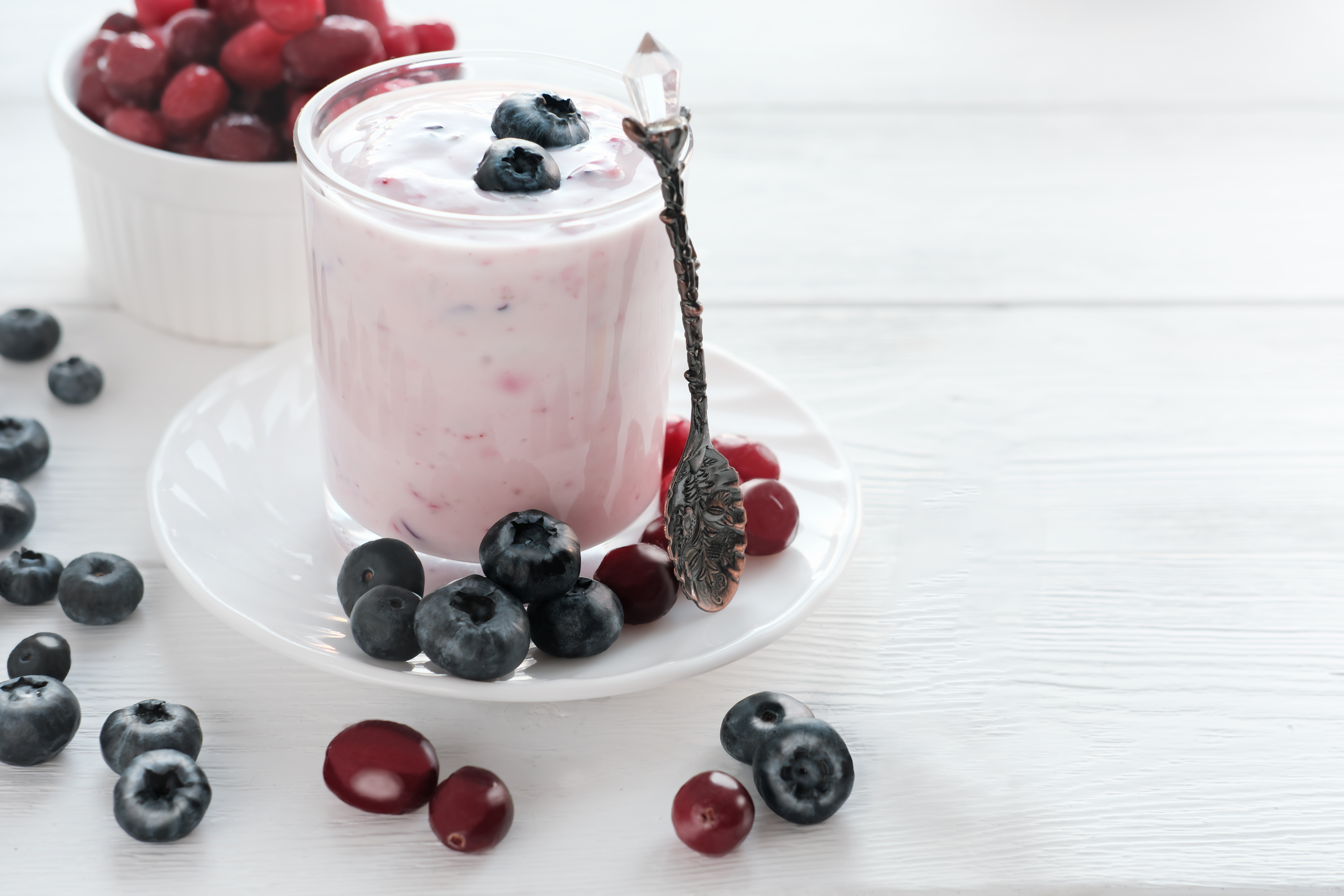
Dairy products, from creamy cheeses to full-fat yogurts, are staples in many diets, offering essential nutrients like calcium and vitamin D. However, their high saturated fat content can pose a risk to cholesterol levels. Saturated fats found in dairy products can trigger the liver to produce more cholesterol, increasing LDL levels in the blood. This makes it crucial to be mindful of the types and quantities of dairy consumed, especially for those with existing cholesterol concerns. The good news is that not all dairy is detrimental. Opting for low-fat or fat-free versions of milk, cheese, and yogurt can significantly reduce the intake of saturated fats while still providing the nutritional benefits. Moreover, incorporating plant-based dairy alternatives, such as almond or soy milk, can further help manage cholesterol levels. These alternatives are often fortified with calcium and vitamins, making them a heart-healthy choice without sacrificing nutritional value. By making informed choices, you can continue to enjoy dairy's benefits without compromising your heart health.
4. The Hidden Risks of Processed Meats

Processed meats, including sausages, hot dogs, and deli meats, are convenient and flavorful additions to meals. However, these products are often high in saturated fats and cholesterol, contributing to elevated LDL levels. The processing methods used to enhance flavor and extend shelf life often involve the addition of unhealthy fats and sodium, both of which are detrimental to heart health. Furthermore, processed meats are frequently consumed in large portions, exacerbating their impact on cholesterol levels. To reduce the risk associated with processed meats, it is advisable to limit their consumption and opt for leaner protein sources. When possible, choose fresh, unprocessed meats, or plant-based alternatives that are lower in saturated fats and cholesterol. Additionally, incorporating a variety of protein sources, such as beans, lentils, and nuts, can provide essential nutrients while supporting heart health. By being mindful of the types and quantities of meats consumed, you can enjoy a balanced diet that prioritizes cardiovascular well-being.
5. The Unseen Threat of Snack Foods

Snack foods, from chips to crackers, are ubiquitous in modern diets, offering convenience and satisfying cravings. However, many of these snacks are high in unhealthy fats, particularly trans fats, which are notorious for raising LDL cholesterol levels. Trans fats are often used in processed snacks to extend shelf life and improve texture, making them a hidden threat to heart health. Additionally, snack foods are typically high in sodium, which can lead to hypertension and further complicate cholesterol management. To enjoy snacks without compromising your cholesterol levels, it is important to choose options that are low in unhealthy fats and high in fiber. Whole-grain crackers, air-popped popcorn, and nuts are excellent alternatives that provide nutrients and satiety without the cholesterol-raising drawbacks. Reading labels and being aware of serving sizes can also help in making informed snack choices. By prioritizing healthier snacks, you can satisfy your cravings while supporting your cardiovascular health.
6. The Sweet Deception of Desserts

Desserts, with their irresistible sweetness, are often the highlight of meals. However, many desserts are laden with ingredients that can quietly raise cholesterol levels. Butter, cream, and eggs, common components in desserts, are high in saturated fats and cholesterol. Additionally, the high sugar content in desserts can lead to weight gain and insulin resistance, both of which are linked to increased cholesterol levels. To enjoy desserts without significantly impacting your cholesterol, consider opting for recipes that use healthier fats, such as olive oil or avocado, and natural sweeteners like honey or maple syrup. Incorporating fruits into desserts can also enhance their nutritional value, providing fiber and antioxidants that support heart health. By making these small adjustments, you can indulge in your sweet tooth without compromising your cardiovascular well-being.
7. The Misleading Appeal of Fast Food
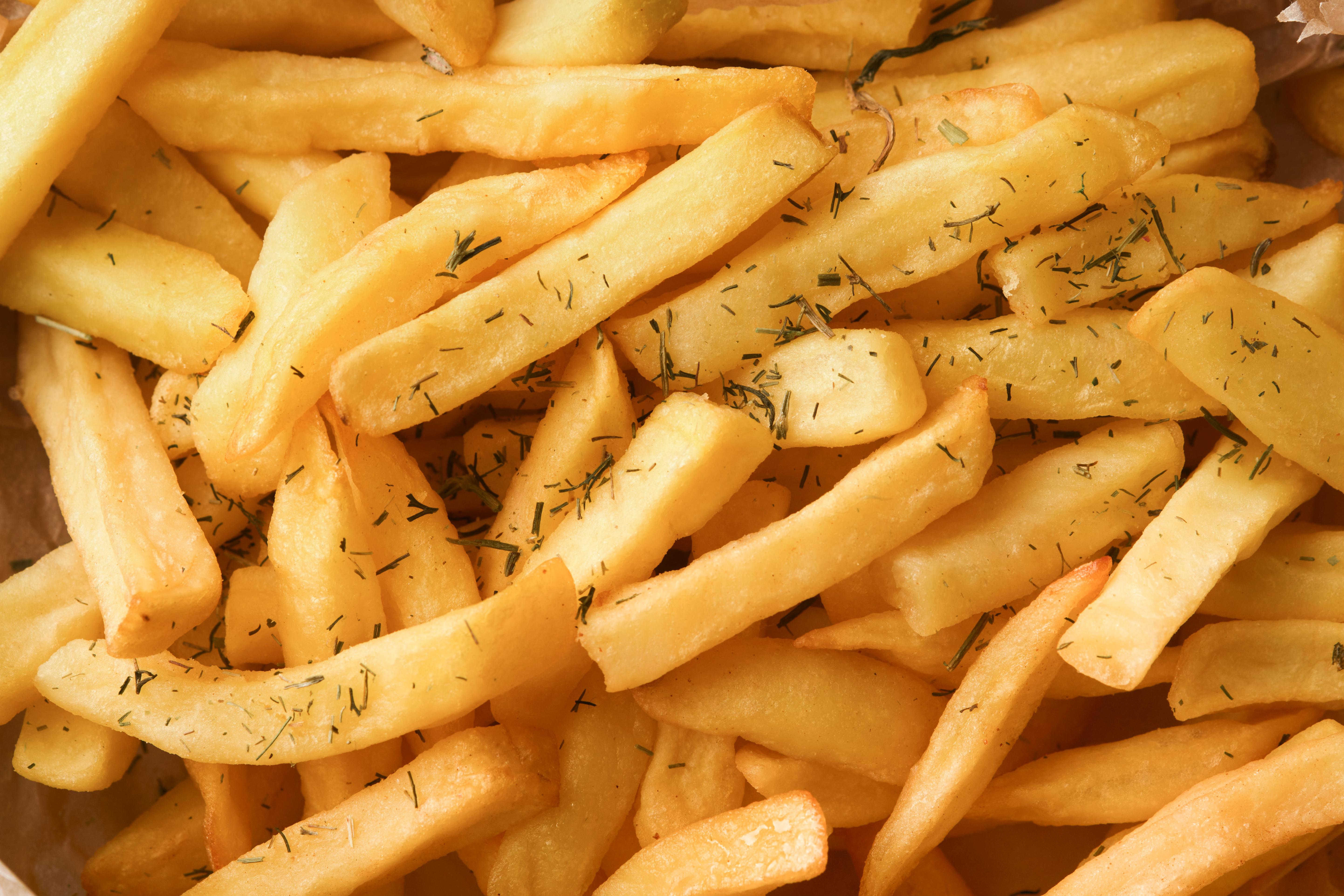
Fast food, with its convenience and flavor, has become a staple in many diets. However, it is often high in saturated fats, trans fats, and cholesterol, making it a significant contributor to elevated LDL levels. The preparation methods used in fast food, such as deep frying and the use of processed ingredients, further exacerbate their impact on cholesterol. Additionally, the large portion sizes and high calorie content can lead to weight gain, complicating cholesterol management. To minimize the impact of fast food on cholesterol levels, it is important to make informed choices. Opting for grilled or baked options instead of fried, and choosing salads or vegetable sides can significantly reduce the intake of unhealthy fats. Being mindful of portion sizes and limiting fast food consumption can also help in maintaining a balanced diet. By making these conscious choices, you can enjoy the convenience of fast food without compromising your heart health.
8. The Underestimated Influence of Sauces and Dressings
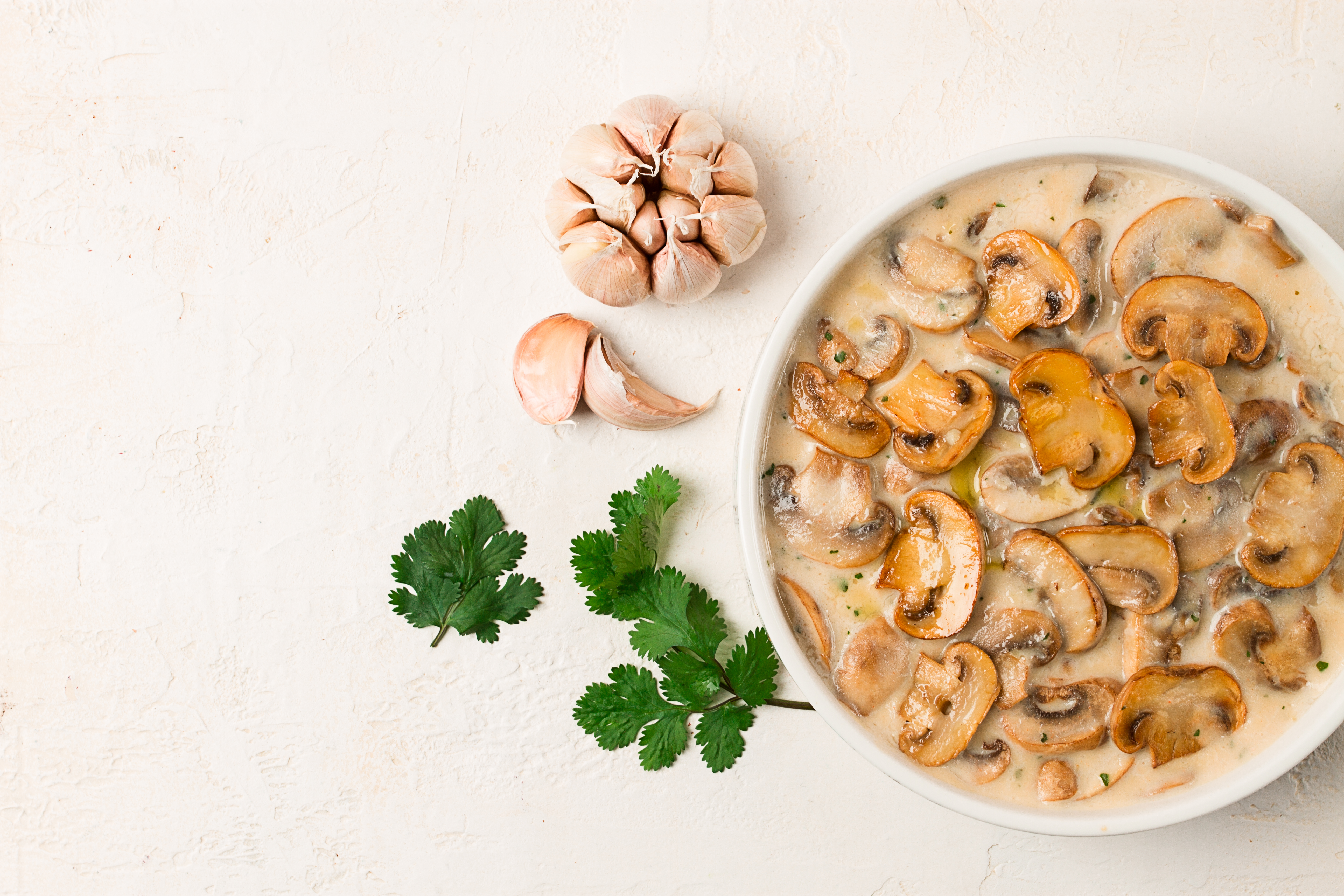
Sauces and dressings, from creamy salad dressings to rich gravies, are often overlooked as contributors to cholesterol levels. However, many of these condiments are high in saturated fats and cholesterol, particularly those that are cream-based. The hidden fats and sugars in sauces and dressings can quietly elevate cholesterol levels, making it important to be mindful of their use. To enjoy sauces and dressings without significantly impacting your cholesterol, consider opting for vinaigrettes or those made with healthy oils, such as olive or canola oil. Additionally, using herbs and spices to enhance flavor can reduce the need for high-fat condiments.
9. The Subtle Impact of Certain Oils

Cooking oils, an essential component of many recipes, can have a significant impact on cholesterol levels. Oils high in saturated fats, such as coconut oil and palm oil, can raise LDL cholesterol levels, making them a potential threat to heart health. While these oils are often marketed as healthy alternatives, their high saturated fat content can quietly elevate cholesterol levels if consumed in large quantities. To support heart health, it is advisable to opt for oils that are low in saturated fats and high in unsaturated fats, such as olive oil, avocado oil, and canola oil. These oils not only provide essential nutrients but also help in managing cholesterol levels.
10. The Unexpected Consequences of Alcohol Consumption

Alcohol, often consumed in social settings, can have a subtle impact on cholesterol levels. While moderate alcohol consumption has been associated with increased HDL cholesterol, excessive intake can lead to weight gain and increased triglycerides, both of which are linked to elevated LDL cholesterol. Additionally, the high calorie content in alcoholic beverages can contribute to weight gain, complicating cholesterol management. To enjoy alcohol without significantly impacting cholesterol levels, it is important to consume it in moderation. Opting for lower-calorie options, such as light beer or wine, and being mindful of portion sizes can help in maintaining a balanced diet. Additionally, pairing alcohol with a variety of healthy foods can enhance its nutritional value, providing fiber and antioxidants that support heart health.
11. The Overlooked Role of Refined Carbohydrates
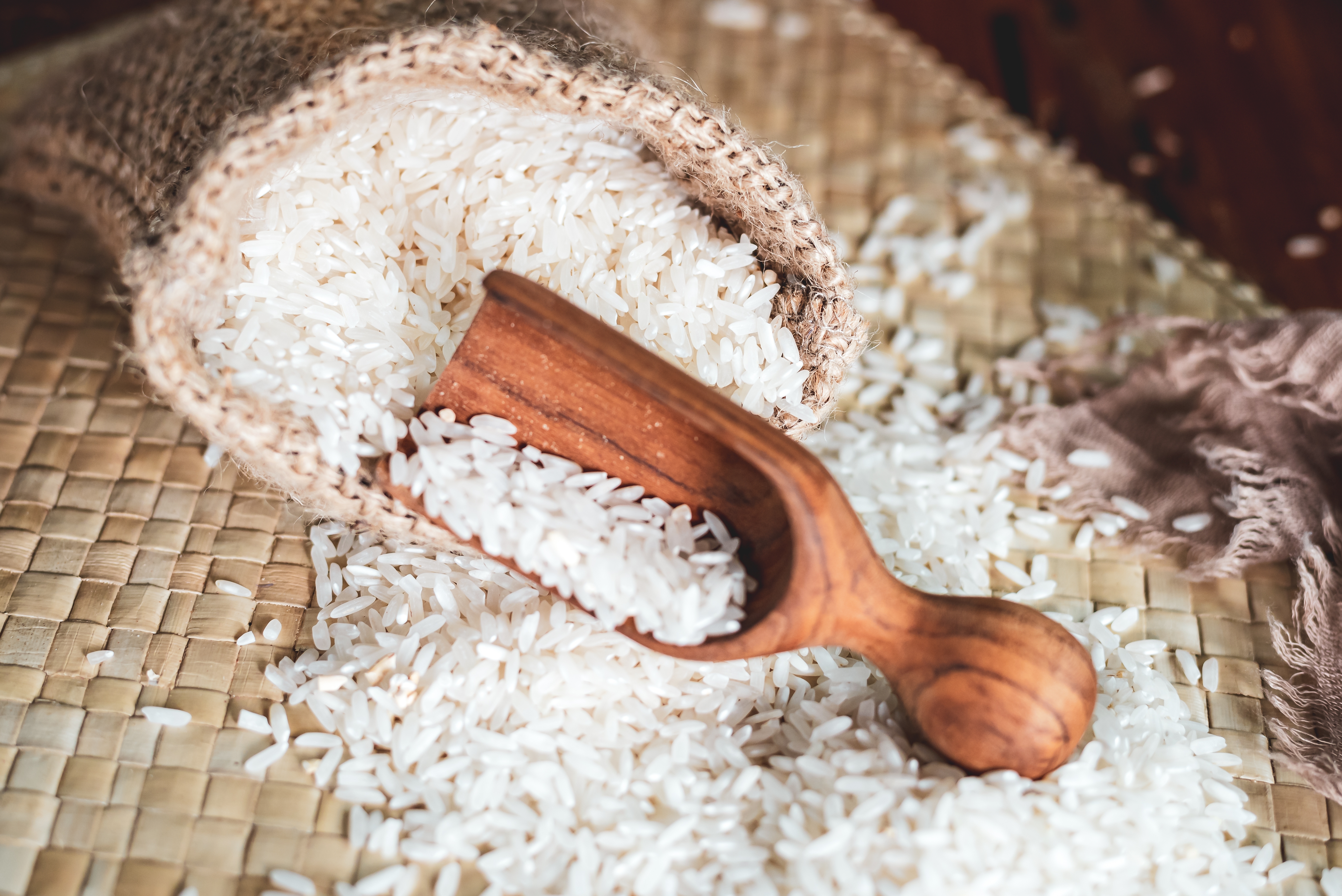
Refined carbohydrates, found in white bread, pasta, and rice, can have a subtle impact on cholesterol levels. These foods are often stripped of their fiber and nutrients, leading to rapid spikes in blood sugar levels. This glycemic spike can lead to insulin resistance, a condition closely linked to increased cholesterol levels. Additionally, the high calorie content in refined carbohydrates can contribute to weight gain, complicating cholesterol management. To enjoy carbohydrates without significantly impacting cholesterol levels, it is important to opt for whole-grain alternatives. Whole-grain bread, pasta, and rice provide fiber and nutrients that support heart health, making them a healthier choice.
12. Flavored Yogurt, A Sugar-Laced Trap
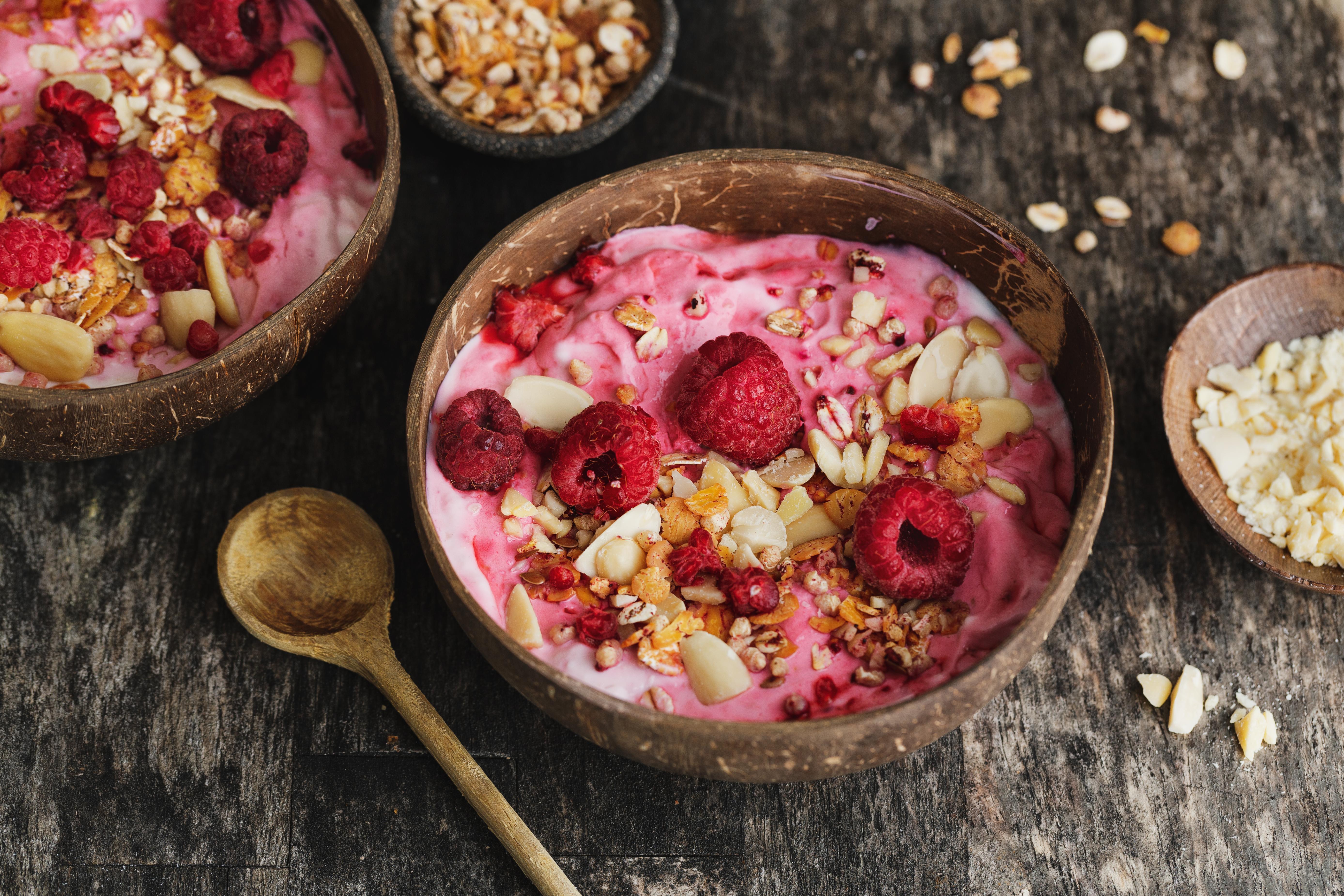
Yogurt often wears the health halo, but flavored varieties can be loaded with added sugars and hidden saturated fats. While yogurt itself can support gut and bone health, many commercial options pack more sugar than a dessert, which can lead to weight gain and insulin resistance—two major drivers of high cholesterol. Some “low-fat” versions even compensate for taste with thickening agents or cream, spiking LDL without you realizing it. For a smarter swap, choose plain Greek yogurt and add your own fruit or a drizzle of honey. That way, you keep the benefits—and lose the cholesterol sabotage.
13. Plant-Based Meat Alternatives, Not Always Heart-Smart
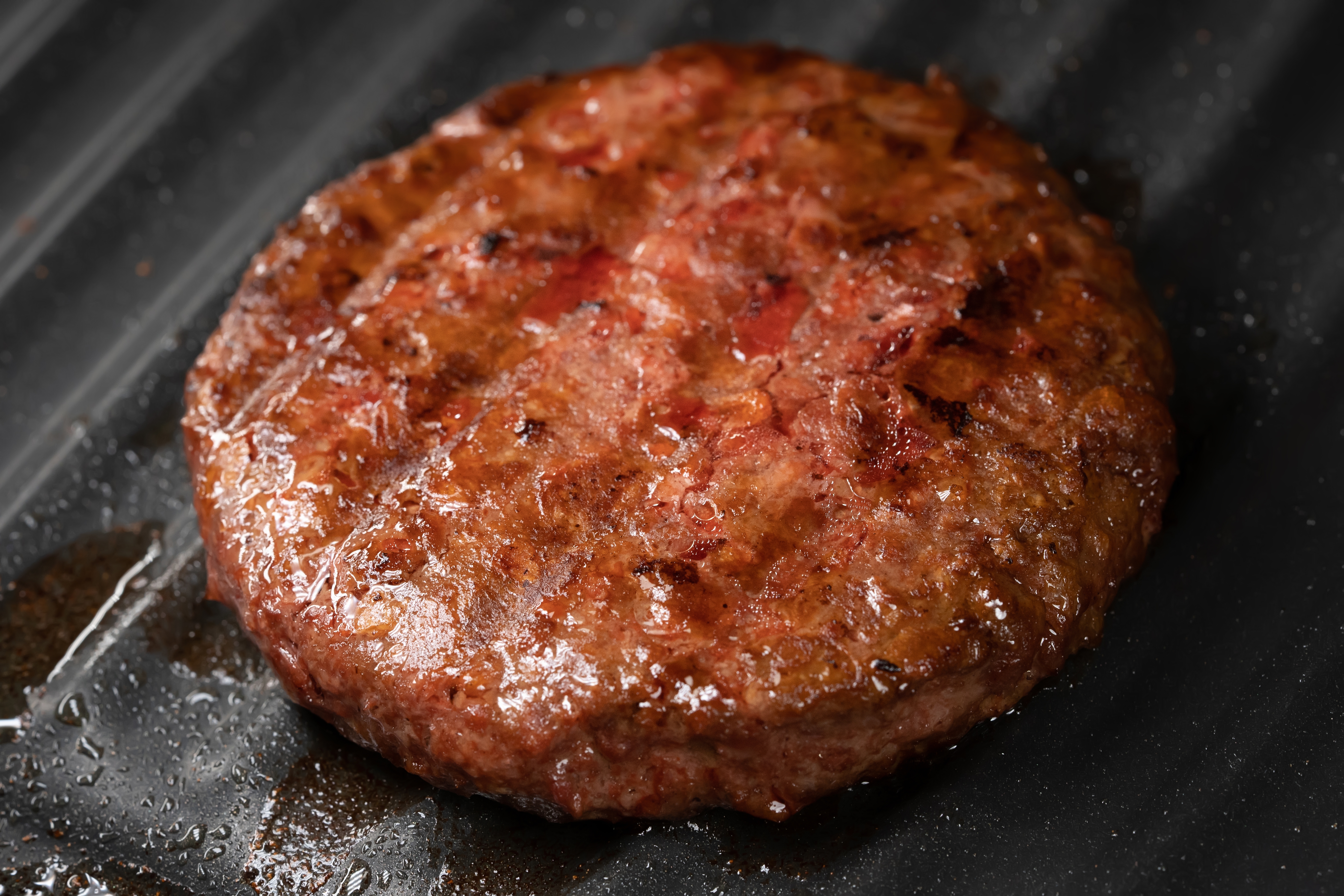
While swapping meat for plant-based alternatives seems like a heart-healthy move, not all meatless products are created equal. Many popular veggie burgers and faux meats are ultra-processed and high in sodium, saturated fats (from coconut or palm oil), and additives. These ingredients can quietly raise LDL cholesterol, especially when consumed frequently. Just because it's plant-based doesn't mean it's clean. To make better choices, look for minimally processed products with whole food ingredients like legumes, grains, and seeds. Or better yet, make your own patties at home. Real plant power shouldn’t come at the cost of your heart health.
14. Gluten-Free Packaged Foods, Empty Swaps But Full Risks
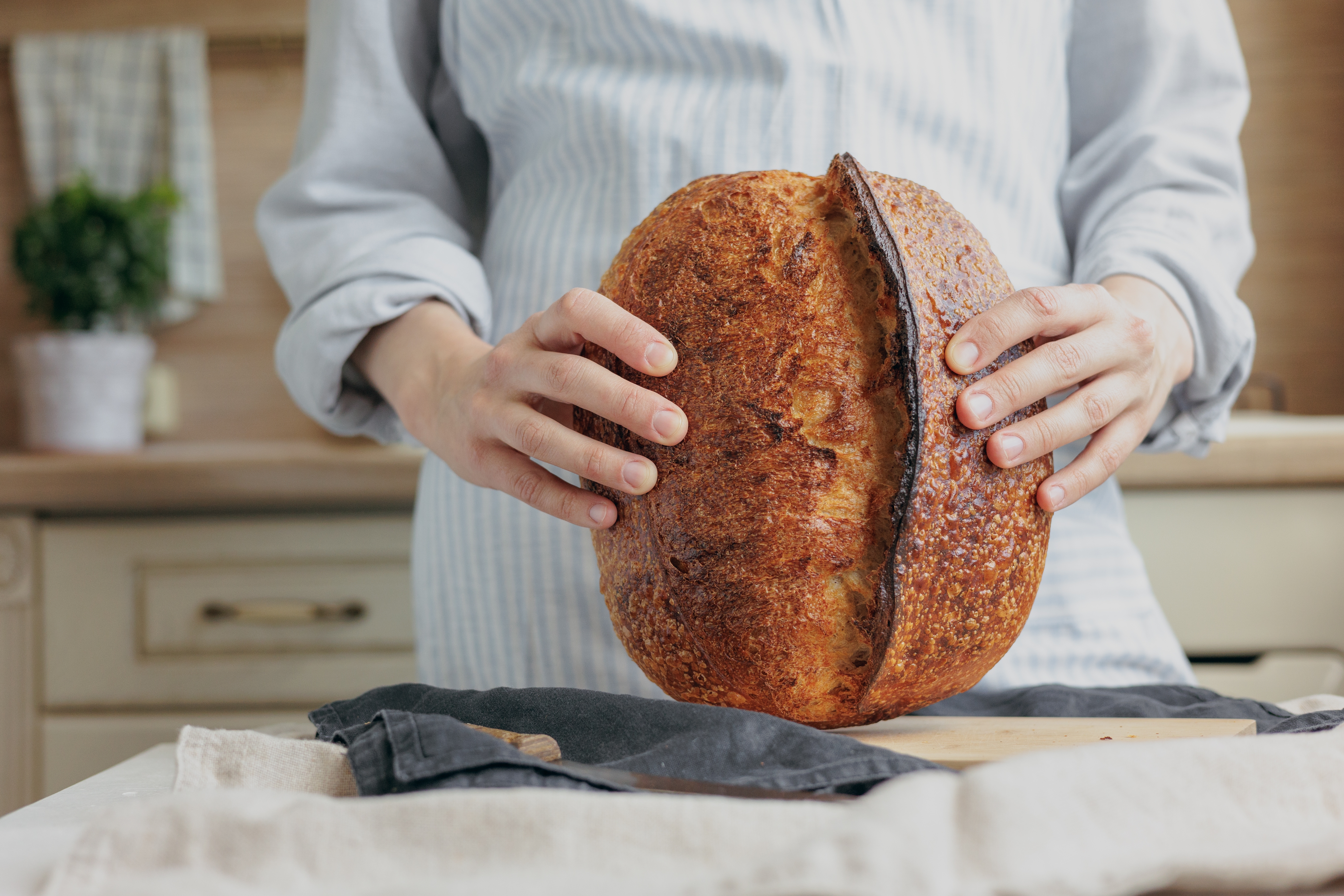
Going gluten-free doesn't always mean going heart-healthy. Many gluten-free breads, crackers, and snacks rely on refined starches—like rice flour, potato starch, and tapioca—which lack fiber and spike blood sugar. Over time, these quick-burning carbs can raise triglycerides and lower HDL, upsetting your cholesterol balance. Worse, some are made with palm oil or shortening to improve texture, adding hidden saturated fats to the mix. Unless you have celiac disease or a confirmed sensitivity, gluten-free should never be assumed better by default. Instead, opt for high-fiber whole grains like oats, quinoa, or buckwheat to truly nourish your heart.
15. Nut Butters, Healthy Fat Until It Isn’t
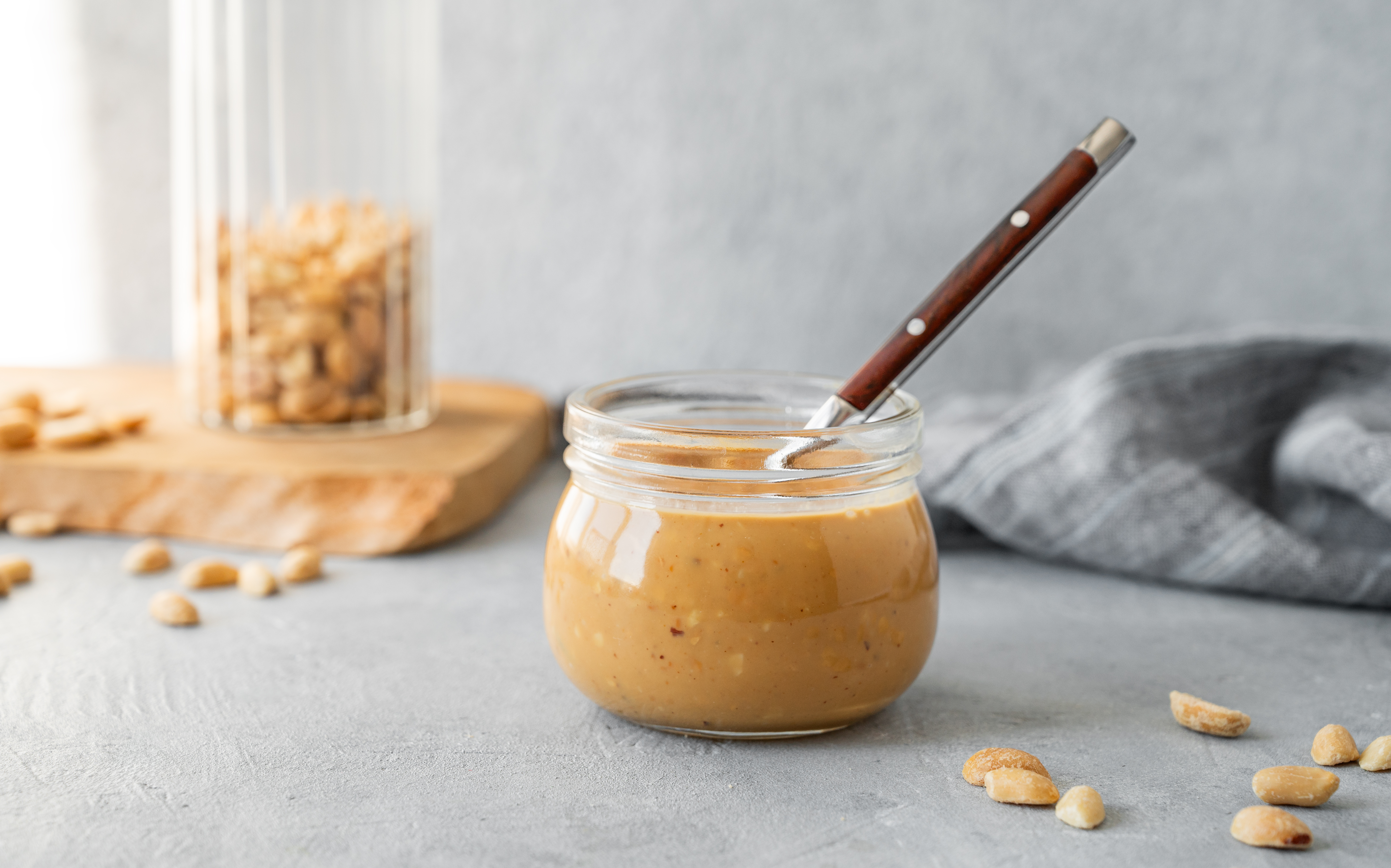
Nut butters—especially almond or peanut—are rich in heart-healthy fats, but not all jars are created equal. Many commercial spreads are blended with hydrogenated oils and added sugars to improve texture and shelf life, which can drive up LDL cholesterol. Even "natural" versions can be calorie-dense, leading to overconsumption and unintended weight gain—another cholesterol trigger. Always read the label: the best nut butter should list only nuts (and maybe a pinch of salt). Stick to moderate servings—1 to 2 tablespoons—and pair it with fiber-rich foods like apple slices or whole grain toast to keep both taste and cholesterol in check.
16. Smoothie Bowls, Trendy But Trouble in a Bowl
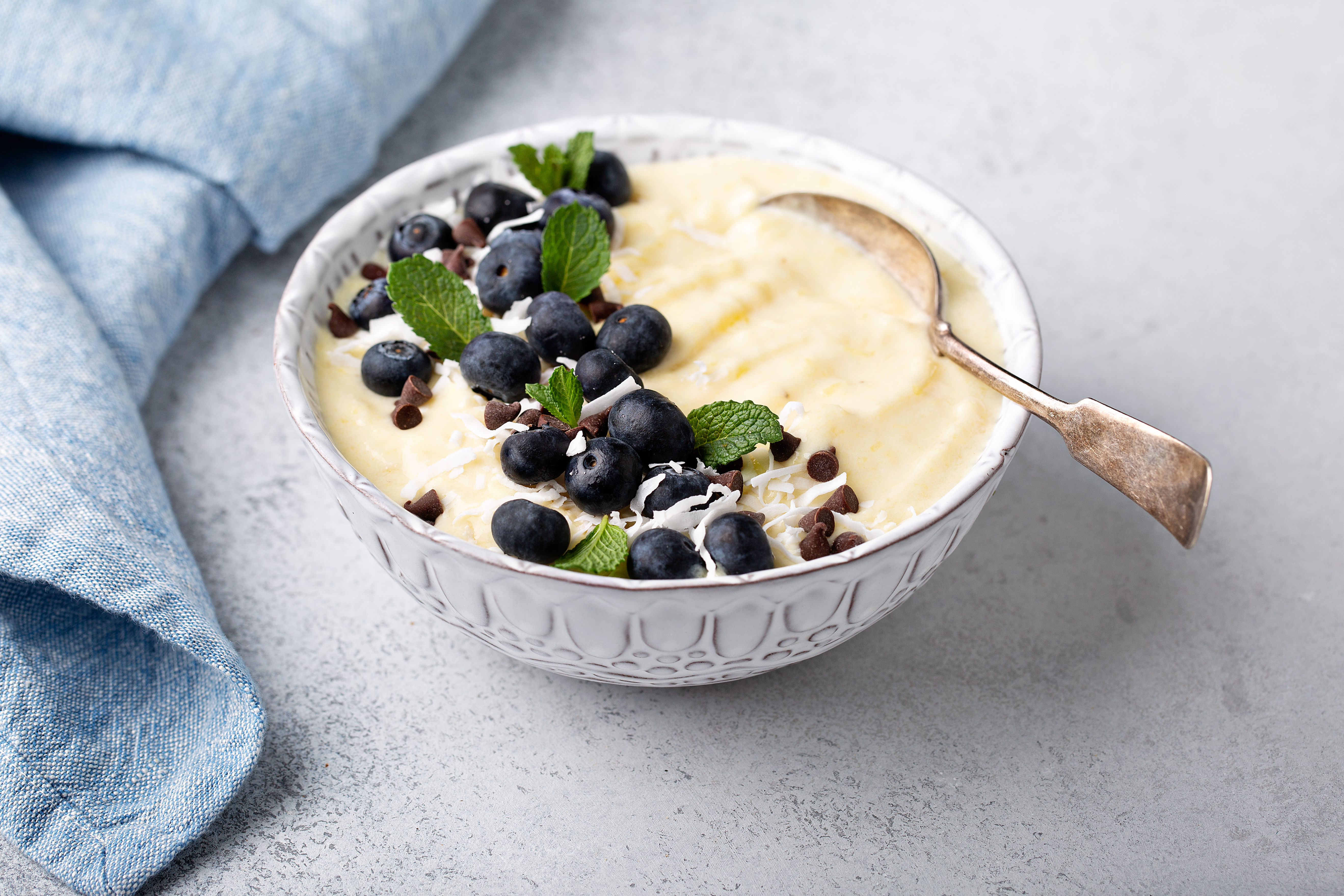
Smoothie bowls are Instagram-worthy and often packed with fruits, seeds, and “superfoods.” But beneath the toppings, they can hide cholesterol-raising pitfalls. Many bowls include sugary yogurt, high-glycemic fruits, sweetened nut milks, and generous scoops of nut butters—resulting in a calorie and sugar bomb that spikes triglycerides and LDL. Add crunchy granola (often high in saturated fats and sugar), and your heart-healthy intentions may backfire. To build a better bowl, start with leafy greens or unsweetened nut milk, limit sugary toppings, and add fiber with chia seeds or flax. The right smoothie bowl should energize—not compromise—your heart health.
17. Rice Cakes: The Empty Crunch That Spikes Cholesterol
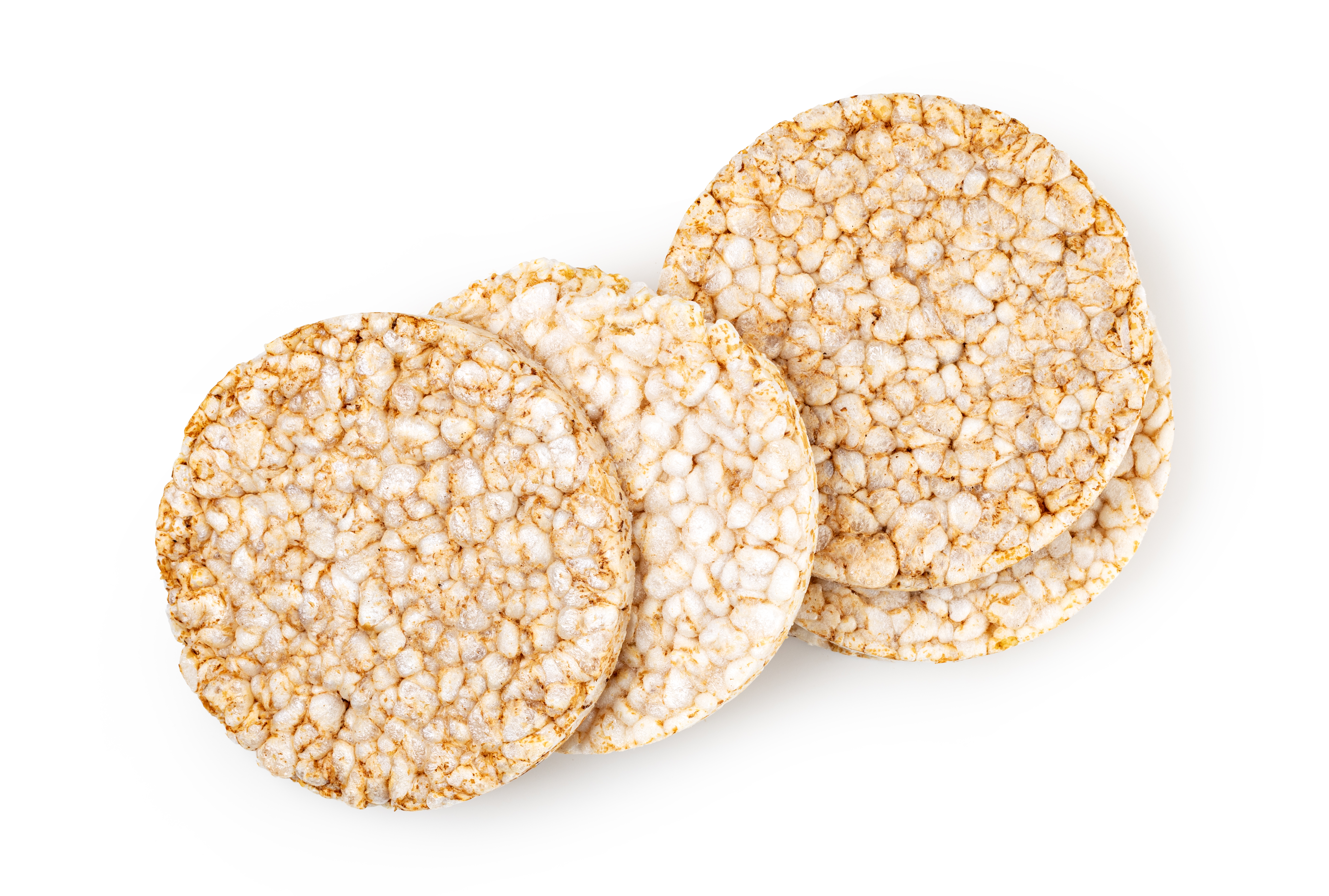
Rice cakes seem like the ultimate guilt-free snack—low in calories, fat-free, and light as air. But don’t be fooled. Made from puffed white rice, these crunchy discs are rapidly digested, causing sharp blood sugar spikes that can increase insulin resistance and raise triglyceride levels. Over time, this can reduce HDL and promote LDL buildup. Plus, flavored versions often contain added sugars or oils that further sabotage your heart health. For a smarter snack, choose whole grain crackers with fiber, or pair a plain rice cake with healthy fat and protein—like avocado or hummus—to balance the impact.
18. Cottage Cheese: Lean Protein with a Salty Twist
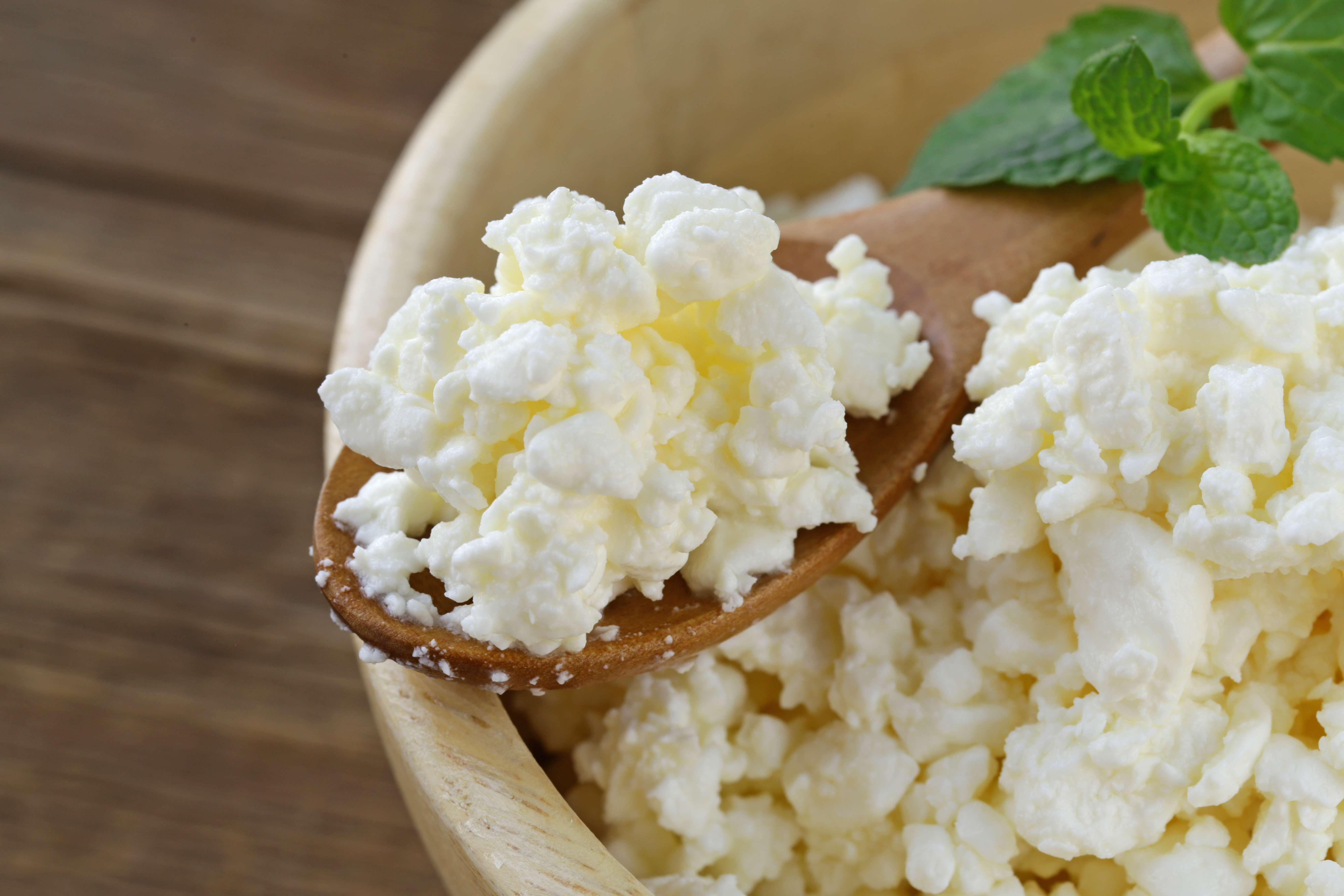
Cottage cheese is often praised for being high in protein and low in fat, but many store-bought versions come loaded with sodium—and that’s where the problem lies. Excess sodium can contribute to high blood pressure, which often goes hand-in-hand with poor cholesterol profiles. Some versions also contain added cream to improve texture, quietly increasing your intake of saturated fats. If you’re eating it regularly for weight loss or muscle building, opt for low-sodium, low-fat varieties and add your own fresh fruit or herbs for flavor. It’s a simple swap that protects your heart without sacrificing protein.
19. Energy Bars: Convenient Fuel, Clogged Arteries
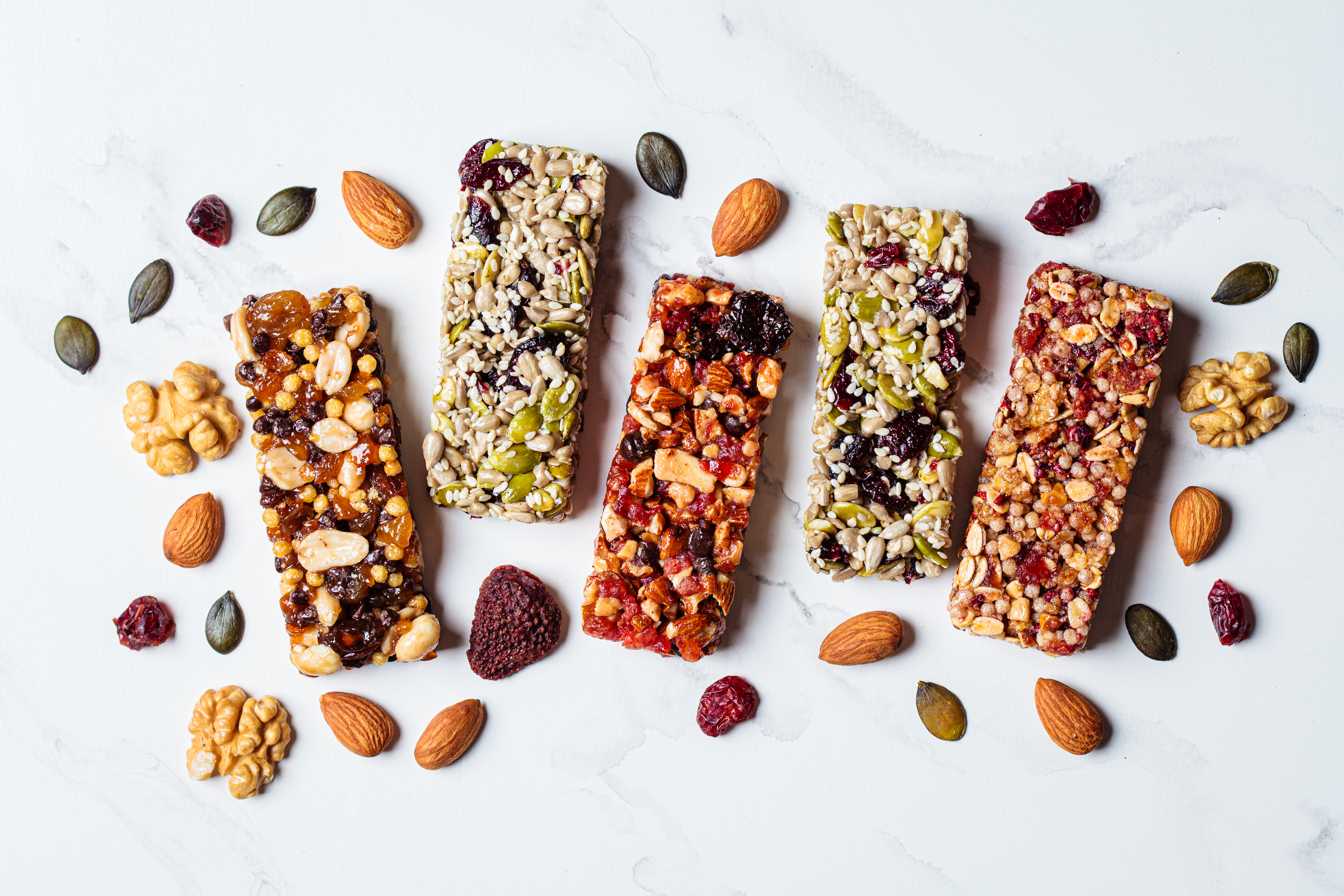
Marketed as clean fuel for active lifestyles, many energy bars are essentially candy bars in disguise. They’re often packed with added sugars, processed oils (like palm or soybean oil), and whey isolates that spike insulin and LDL cholesterol. Even “natural” bars may contain syrups or saturated fats that derail heart health. If you’re grabbing bars as meal replacements or pre-workout fuel, check the label: aim for bars with less than 6g of sugar, no trans fats, and whole food ingredients like oats, nuts, and dried fruit. Or better yet, make your own for full control over what’s fueling your heart.
20. Vegan Baked Goods: Plant-Based Doesn’t Mean Heart-Safe

Just because a muffin is vegan doesn’t mean it’s heart-healthy. Many plant-based baked goods rely on coconut oil (high in saturated fat) or palm shortening for structure, and often pack just as much sugar and refined flour as their traditional counterparts. These ingredients can quietly raise LDL cholesterol and triglycerides, especially when eaten regularly. The “vegan” label might sound virtuous, but it doesn’t cancel out the metabolic impact of nutrient-poor, ultra-processed ingredients. If you love a baked treat, choose recipes made with olive oil, almond flour, or whole grains—and keep portions in check. Plants alone aren’t enough.
21. Oat Milk Lattes: Creamy Comfort, Cholesterol Risk
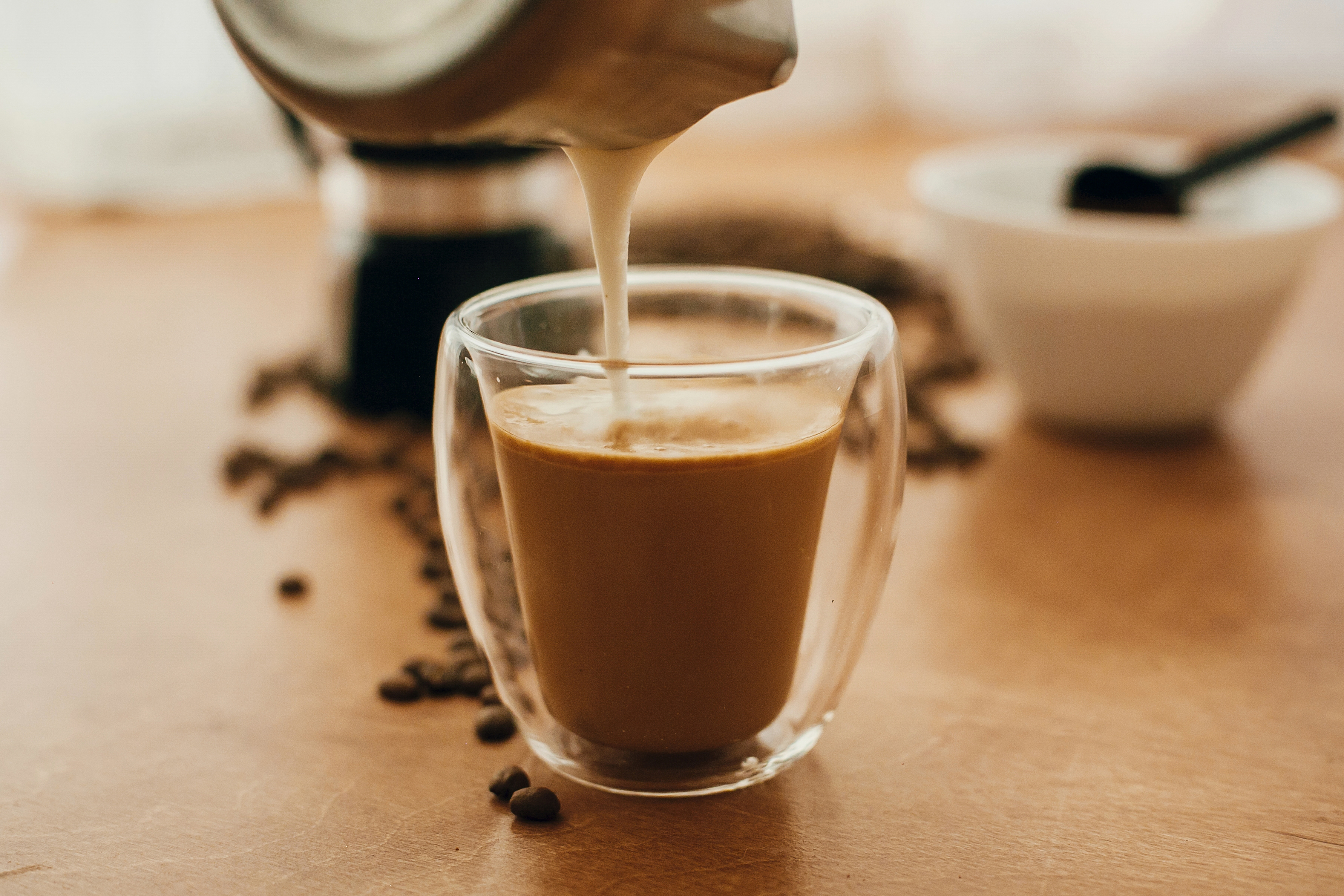
Oat milk may be trendy—and a solid dairy alternative—but many barista blends are ultra-processed and packed with added oils (like rapeseed or sunflower) to create that creamy, frothy texture. These emulsifiers, combined with added sugars, can elevate LDL levels when consumed regularly. Plus, oat milk is high in starch, which can spike blood sugar and indirectly contribute to triglyceride buildup. A morning oat milk latte might feel like a virtuous swap, but depending on the brand, it could be a daily cholesterol sneak attack. Choose unsweetened, low-oil versions—or consider rotating with almond or soy milk to diversify your heart protection.
22. Canned and Packaged Soups: A Salty, Sugary Surprise

Canned and packaged soups, especially those marketed as "healthy" or "low-fat," can be a surprising source of both high sodium and hidden sugars. To enhance flavor and shelf life, manufacturers often add sugar (in the form of corn syrup, maltodextrin, etc.) to balance the high sodium content and acidity. This combination can increase blood pressure and triglycerides, two major risk factors for heart disease. Always check the ingredients list for added sugars and opt for low-sodium, broth-based soups with whole-food ingredients instead of creamy, processed varieties.
23. Flavored Instant Oatmeal: The Breakfast Sugar Trap
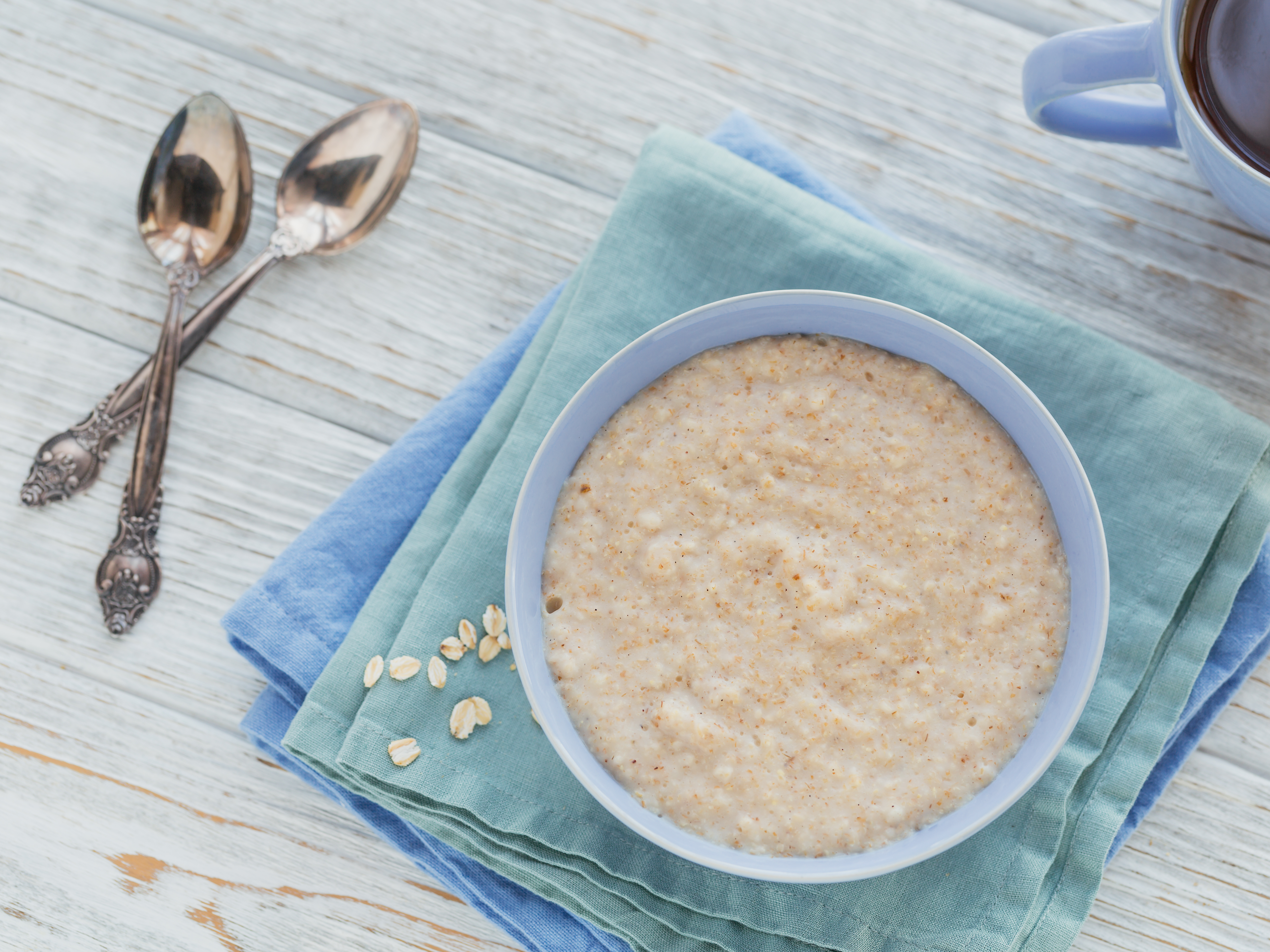
While oatmeal itself is a heart-healthy powerhouse, the flavored, instant packets are often a sugar-laced trap. These convenient breakfast options typically contain more added sugar than fiber, which can lead to a blood sugar spike and subsequent crash, contributing to insulin resistance over time. Some flavored oatmeals may also contain artificial ingredients or hydrogenated oils to improve texture and shelf life, further sabotaging your cholesterol goals. For a truly heart-smart breakfast, stick to plain rolled oats and add your own fresh fruit, nuts, or a dash of cinnamon.
24. Agave Nectar: The "Healthy" Sweetener with a Dark Side
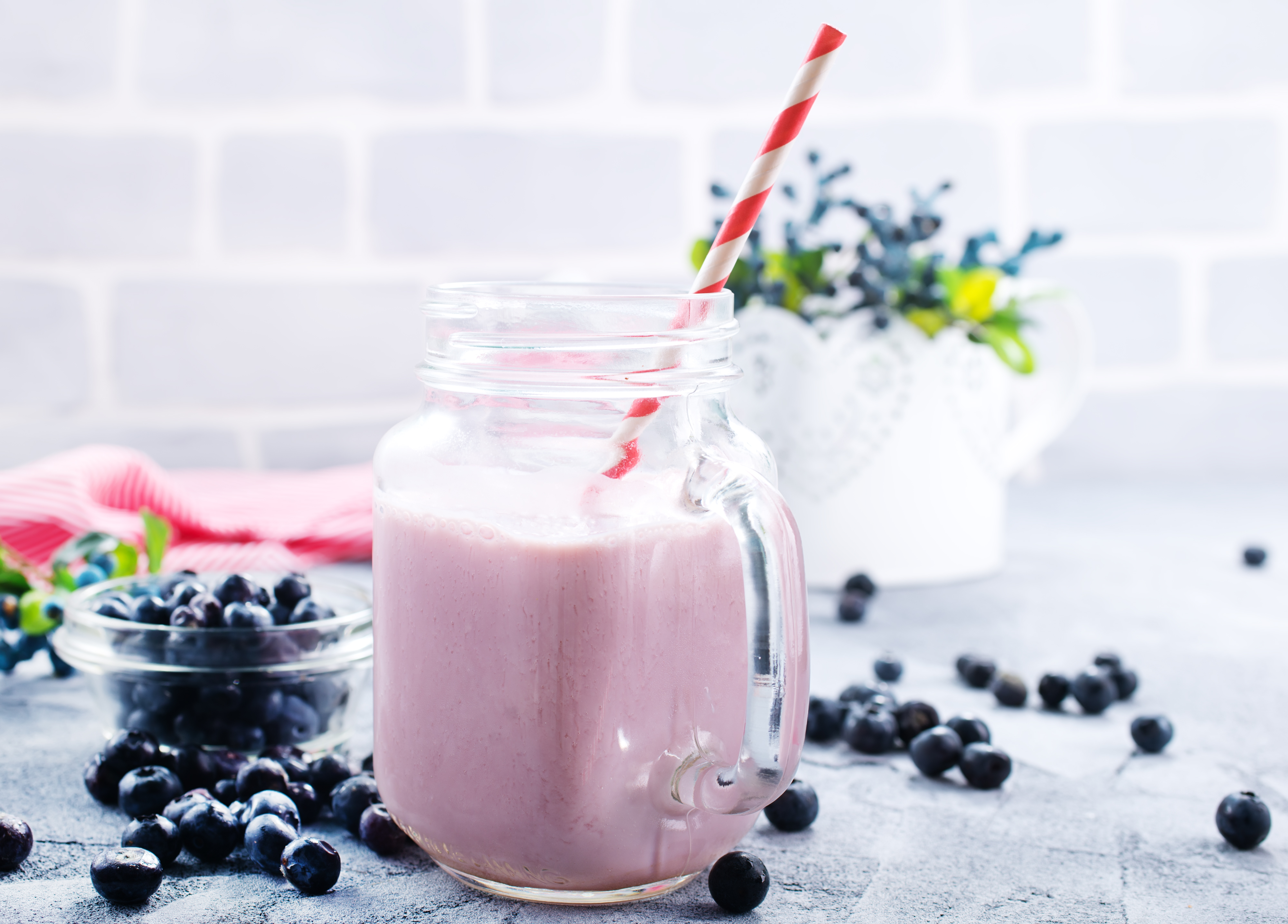
Agave nectar is often marketed as a natural, low-glycemic alternative to sugar, but it has a secret: it's incredibly high in fructose. The liver metabolizes fructose, and excessive amounts can be directly converted into triglycerides, a type of fat that can raise your risk of heart disease. In fact, agave nectar has a higher fructose content than high-fructose corn syrup. While a small amount is unlikely to cause harm, relying on agave as a "healthy" sweetener can be a quiet threat to your heart health.
25. Granola: The Fiber-Filled Snack with a Sugar Problem
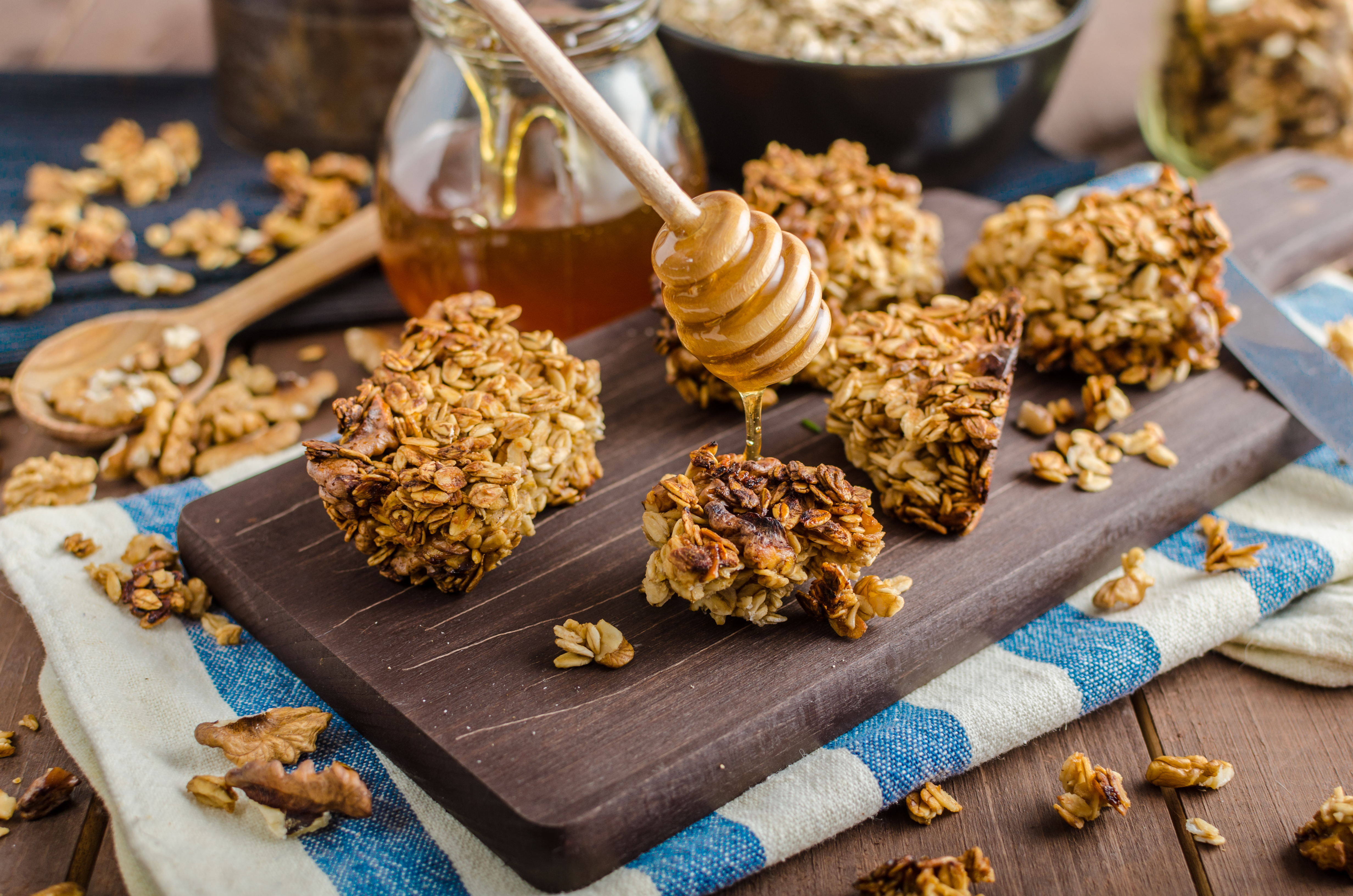
Loose granola is often lauded for its oats, nuts, and seeds, but many store-bought varieties are a sugar and fat bomb. To make them crunchy and delicious, manufacturers use high amounts of sweeteners (like honey, maple syrup, or cane sugar) and unhealthy oils that are high in saturated fat. The result is a calorie-dense, low-fiber snack that can increase LDL cholesterol and triglycerides. For a genuinely heart-healthy granola, choose brands with minimal added sugar and whole-food ingredients, or make your own at home using oats, nuts, and a healthy oil like olive or avocado.
26. Dried Fruits: The Concentrated Sugar Snack
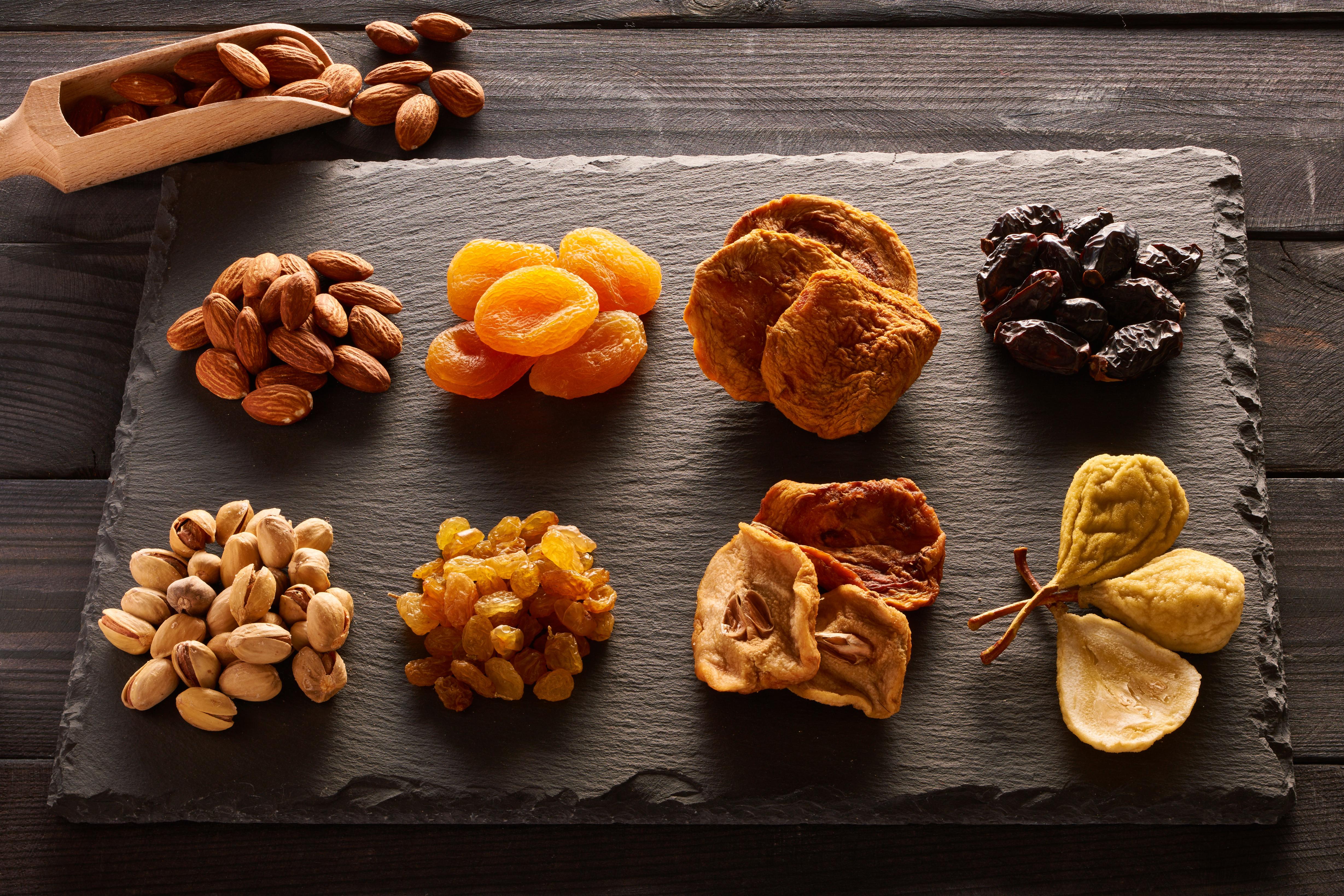
Dried fruits, often seen as a nutritious snack, can have a surprisingly negative impact on cholesterol levels. The drying process concentrates the fruit’s natural sugars, and many commercial brands add even more sugar. This concentrated sugar can rapidly raise blood sugar and insulin levels, prompting the liver to produce more triglycerides. With most of the fiber removed during processing, a small handful of dried fruit can quickly become a significant source of sugar with little to no satiety. A better choice is to eat a small amount of dried fruit alongside protein or healthy fat to help balance the impact.
27. Coffee: The Brewing Cholesterol Contender

Your morning cup of coffee might be silently sabotaging your cholesterol levels, depending on how it's prepared. While black coffee itself is a very low-risk beverage, unfiltered coffee—such as from a French press or Turkish style—contains a high concentration of cafestol and kahweol. These compounds have been shown to directly raise LDL (bad) cholesterol. Similarly, adding full-fat dairy, coconut oil, or sugary syrups to your coffee can turn a harmless drink into a cholesterol-raising culprit. Opt for filtered coffee and unsweetened plant-based milk to keep your morning ritual heart-healthy.
28. Sushi Rolls: The Deceptive Healthy Treat
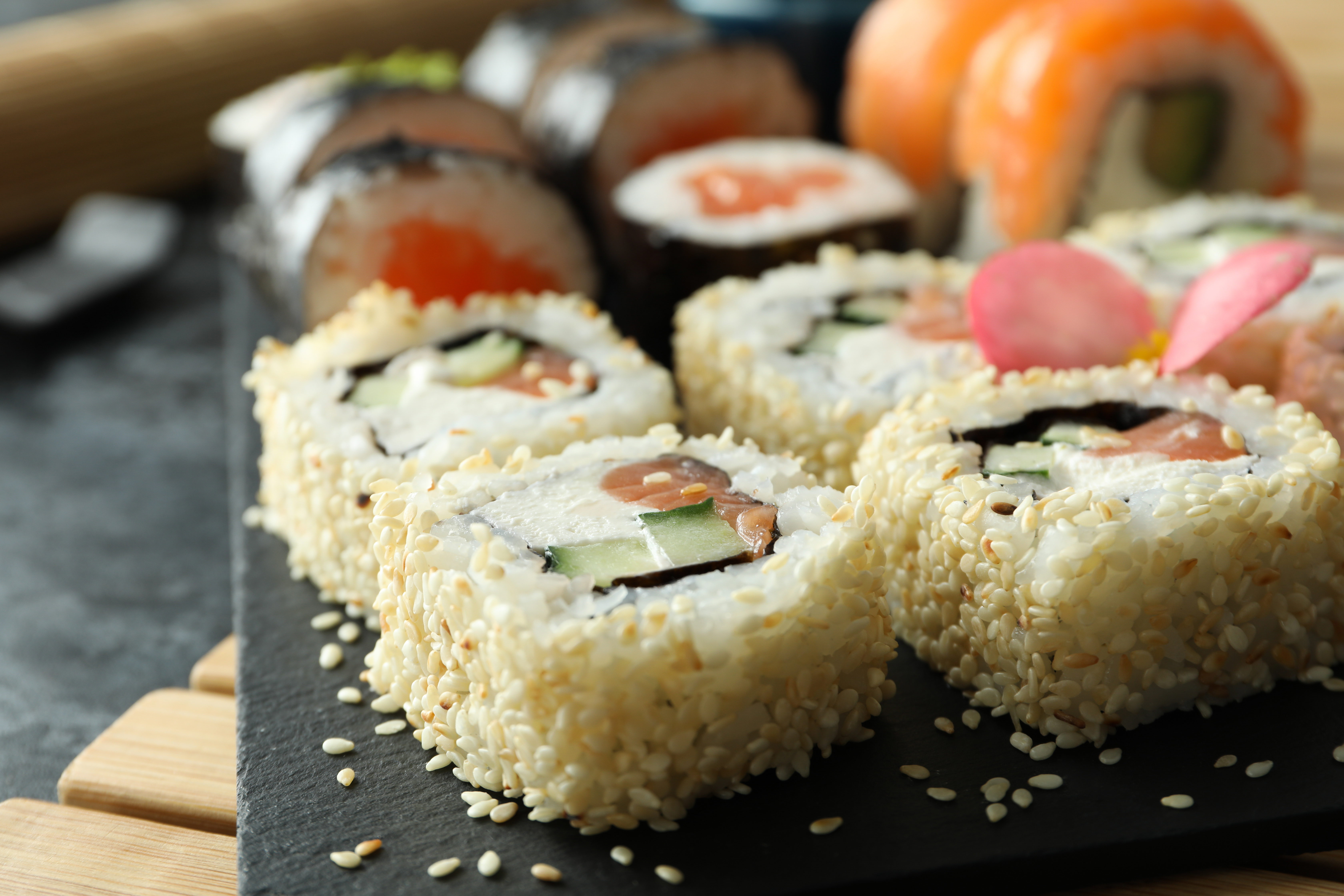
While the fish in sushi is rich in heart-healthy omega-3s, many popular sushi rolls are far from a healthy choice. The sticky white rice is often prepared with a sugary vinegar mixture, and many rolls are filled with high-fat, high-sodium ingredients like cream cheese, tempura-fried seafood, and sugary sauces. These additions can quickly turn a lean protein meal into a calorie and sugar bomb that raises triglycerides and contributes to insulin resistance—two major factors in cholesterol management. For a heart-smart choice, stick to simple rolls with raw fish, vegetables, and minimal sauces.
29. Tuna (Canned): A Protein Staple, Not Always Heart-Smart
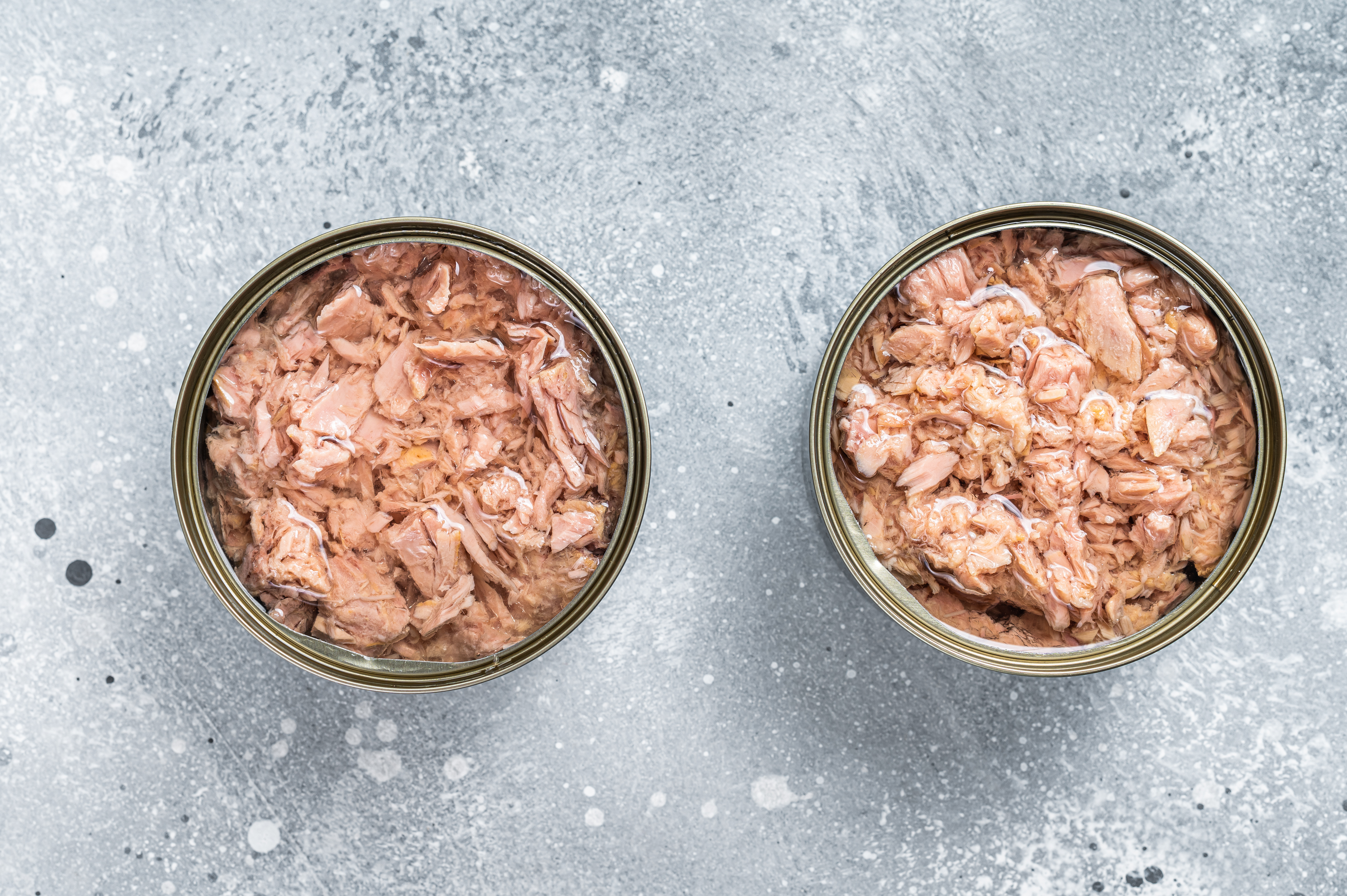
Canned tuna is a convenient protein staple, but it can quietly contribute to high cholesterol, especially if you're not choosing wisely. Tuna canned in oil (like soybean or vegetable oil) can add unwanted processed fats to your diet, which can promote inflammation and disrupt your cholesterol profile. The best option is to choose tuna canned in water, which is low in fat and a great source of lean protein and heart-healthy omega-3s. Be mindful of added ingredients and opt for the simplest choice to keep your meals clean and heart-friendly.
30. Canned Tomatoes: The Hidden Sugar to Balance Acidity
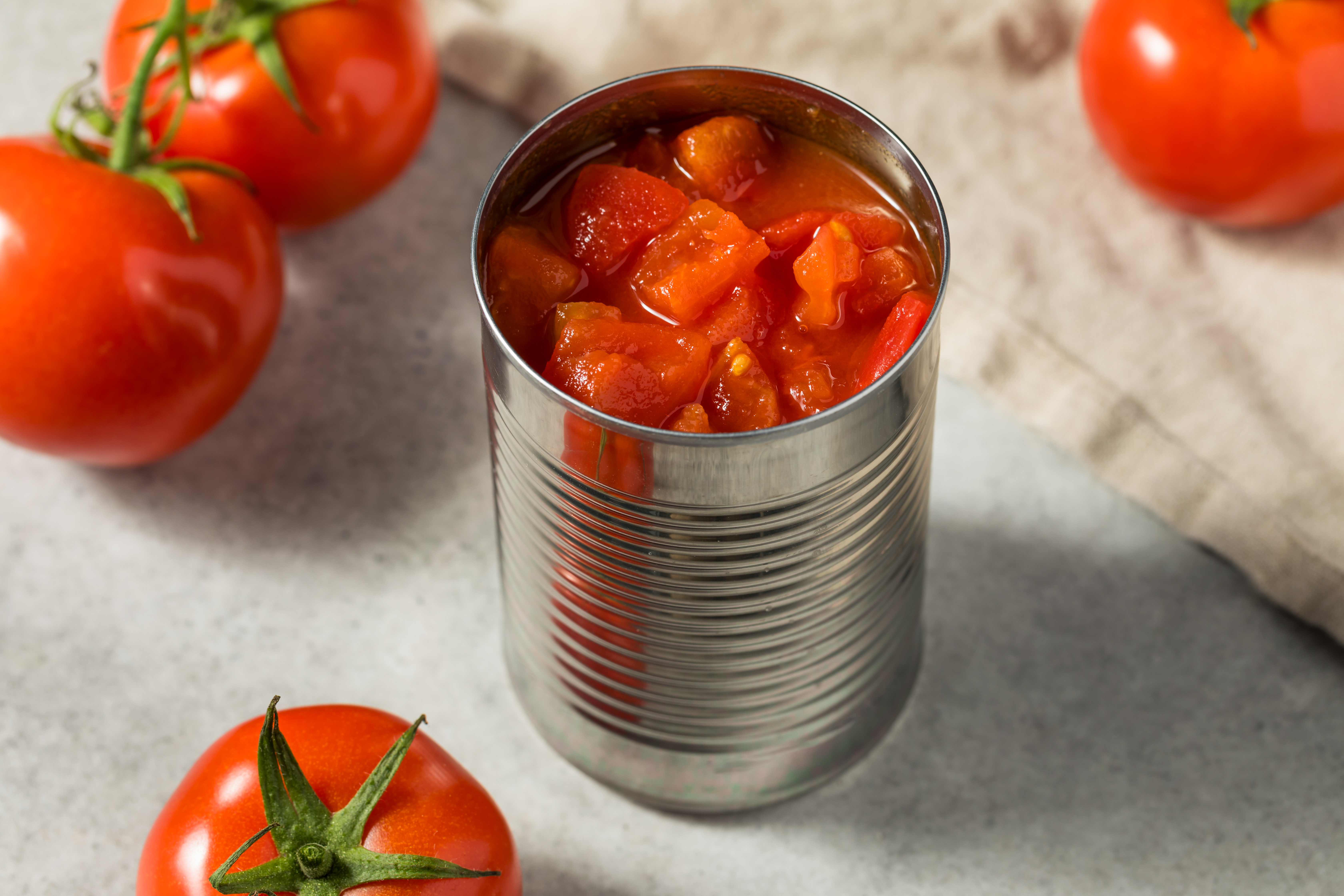
Canned tomatoes, tomato paste, and many store-bought pasta sauces are a staple in kitchens worldwide, but they can be a source of hidden sugars that raise cholesterol. To balance the natural acidity of the tomatoes and enhance flavor, manufacturers often add sugar, high-fructose corn syrup, or other sweeteners. These additives can spike blood sugar and promote triglyceride production, both of which are linked to elevated LDL cholesterol. Always read the ingredient list and nutrition label carefully, and choose brands with no added sugar. For a truly heart-healthy meal, make your own sauce from fresh tomatoes.
31. Cod Liver Oil: A Healthy Fat with a Catch
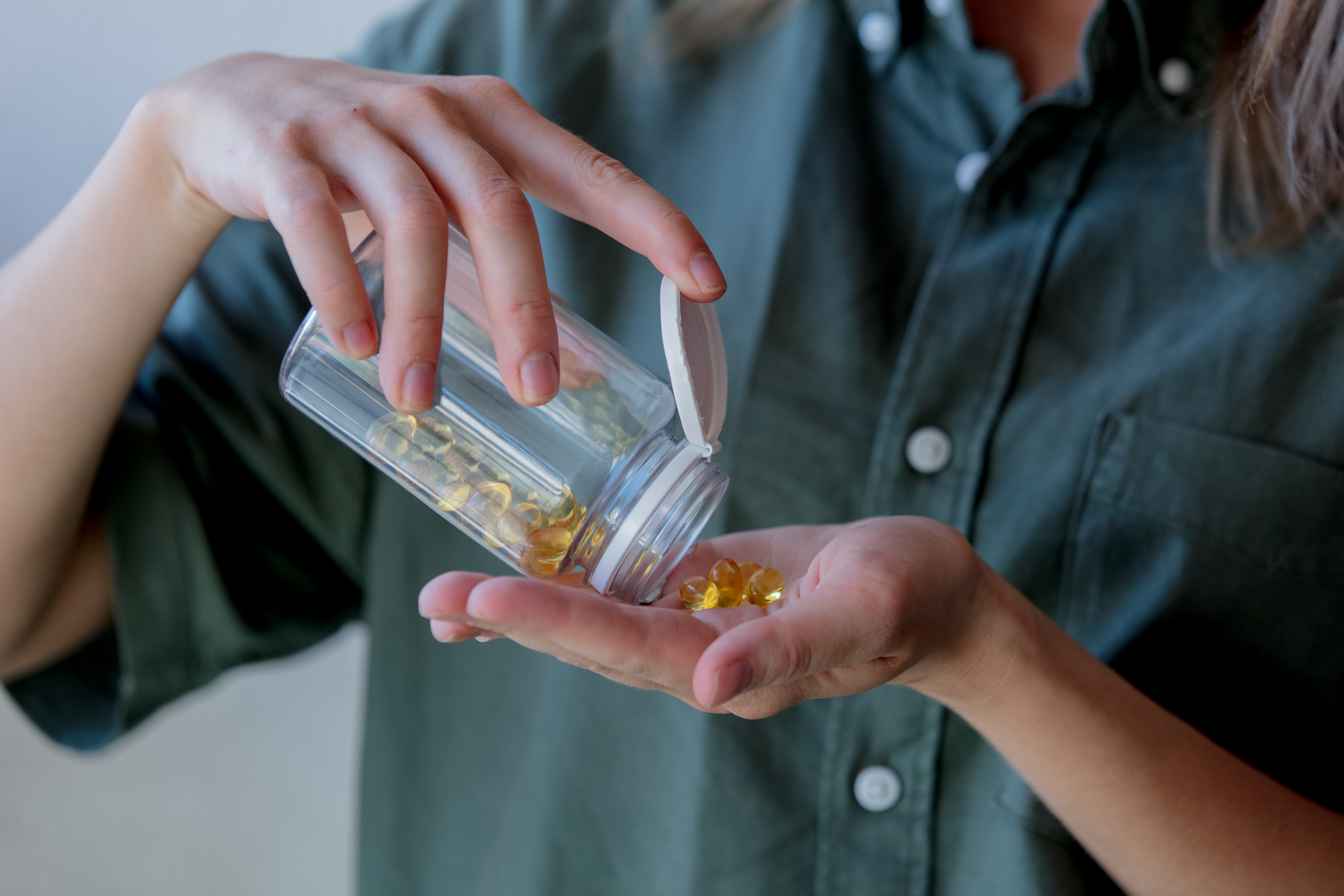
Cod liver oil is a traditional health tonic, valued for its high content of omega-3s and vitamins A and D. However, it's a very specific type of fat that can impact cholesterol. While the omega-3s are beneficial, cod liver oil is also high in dietary cholesterol. While dietary cholesterol has less impact on blood cholesterol for most people than saturated fat, for individuals who are genetically predisposed to high cholesterol, this can be a concern. Additionally, the high vitamin A content can be toxic in large doses. Always consult a doctor before supplementing, especially for those with existing health conditions.
32. Frozen Diet Meals: The Convenient Meal with Hidden Traps
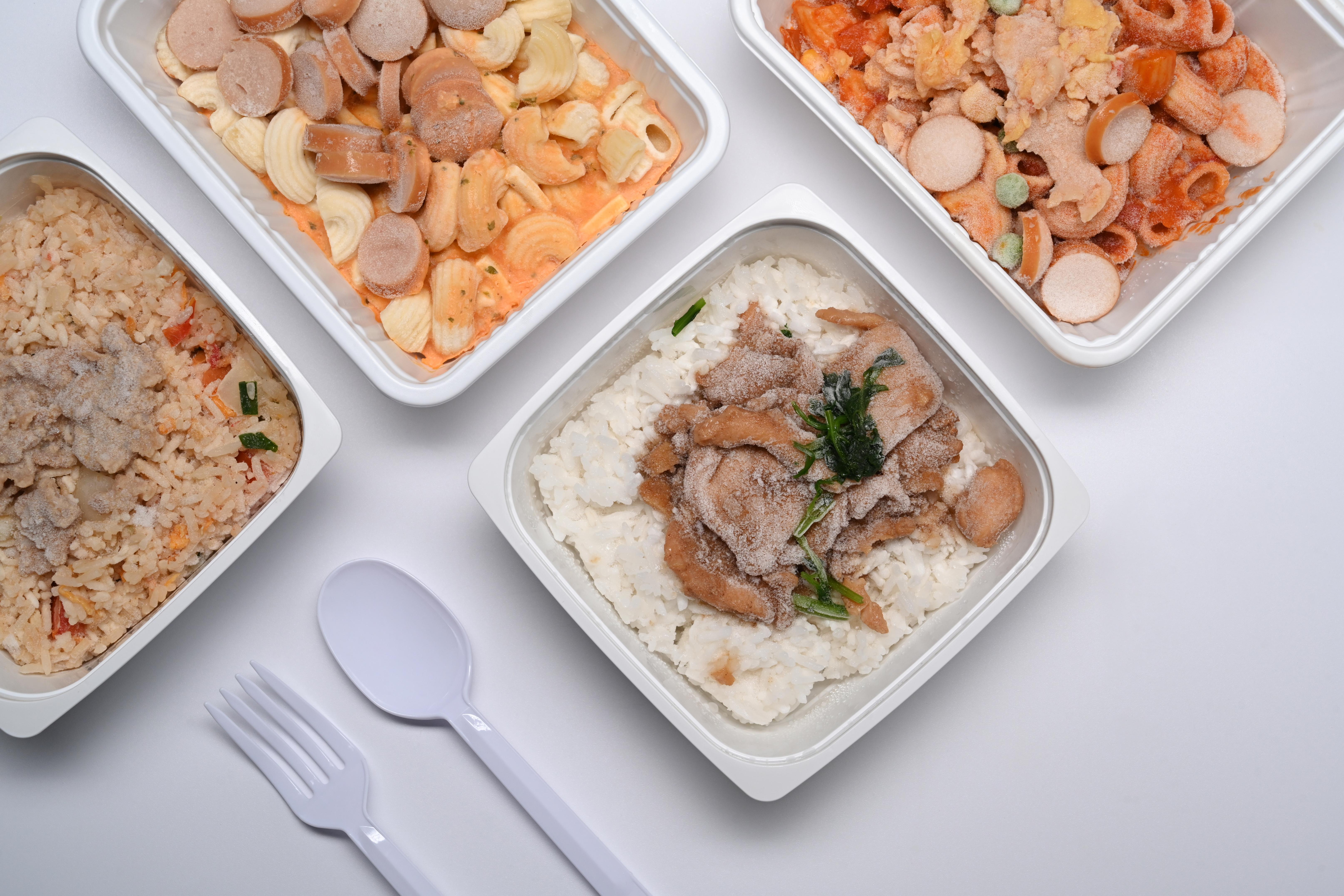
Frozen diet meals promise a quick, portion-controlled solution for weight loss and "healthy" eating, but they can be a major cholesterol risk. To make them shelf-stable and palatable, manufacturers often load them with processed vegetable oils (which can become inflammatory when heated at high temperatures), excessive sodium, and hidden sugars. This trifecta can lead to high blood pressure, inflammation, and elevated LDL cholesterol. Plus, they’re often low in fiber and antioxidants, which are essential for heart health. Instead of relying on a box, batch-cook your own heart-healthy meals using lean protein, whole grains, and plenty of vegetables to ensure you're in control of every ingredient.
33. Diet Soda and Zero-Calorie Sweeteners: The Guilt-Free Drink with a Cost
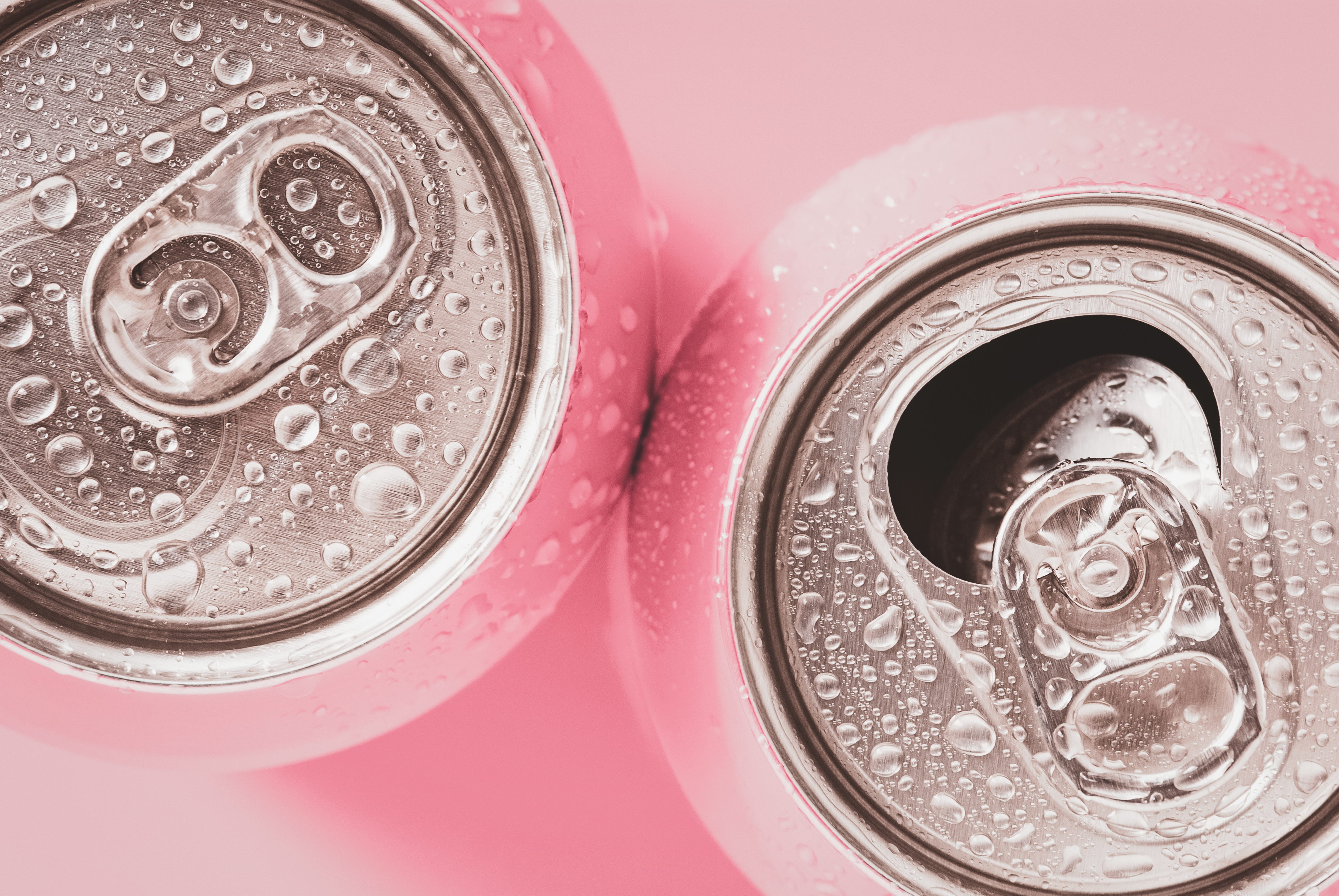
Diet sodas and other sugar-free drinks might seem like a smart way to cut calories, but they can secretly sabotage your cholesterol goals. Research suggests that regularly consuming artificial sweeteners can alter your gut microbiome and disrupt metabolic function, which may lead to insulin resistance and a rise in triglycerides. While the research is still emerging, the link between frequent diet soda consumption and a higher risk of metabolic syndrome—a major precursor to heart disease—is becoming clearer. Instead of reaching for a chemical-laden beverage, hydrate with infused water, sparkling water with a squeeze of citrus, or unsweetened tea.
34. Store-Bought Salad Dressings: The Healthy Salad's Hidden Enemy
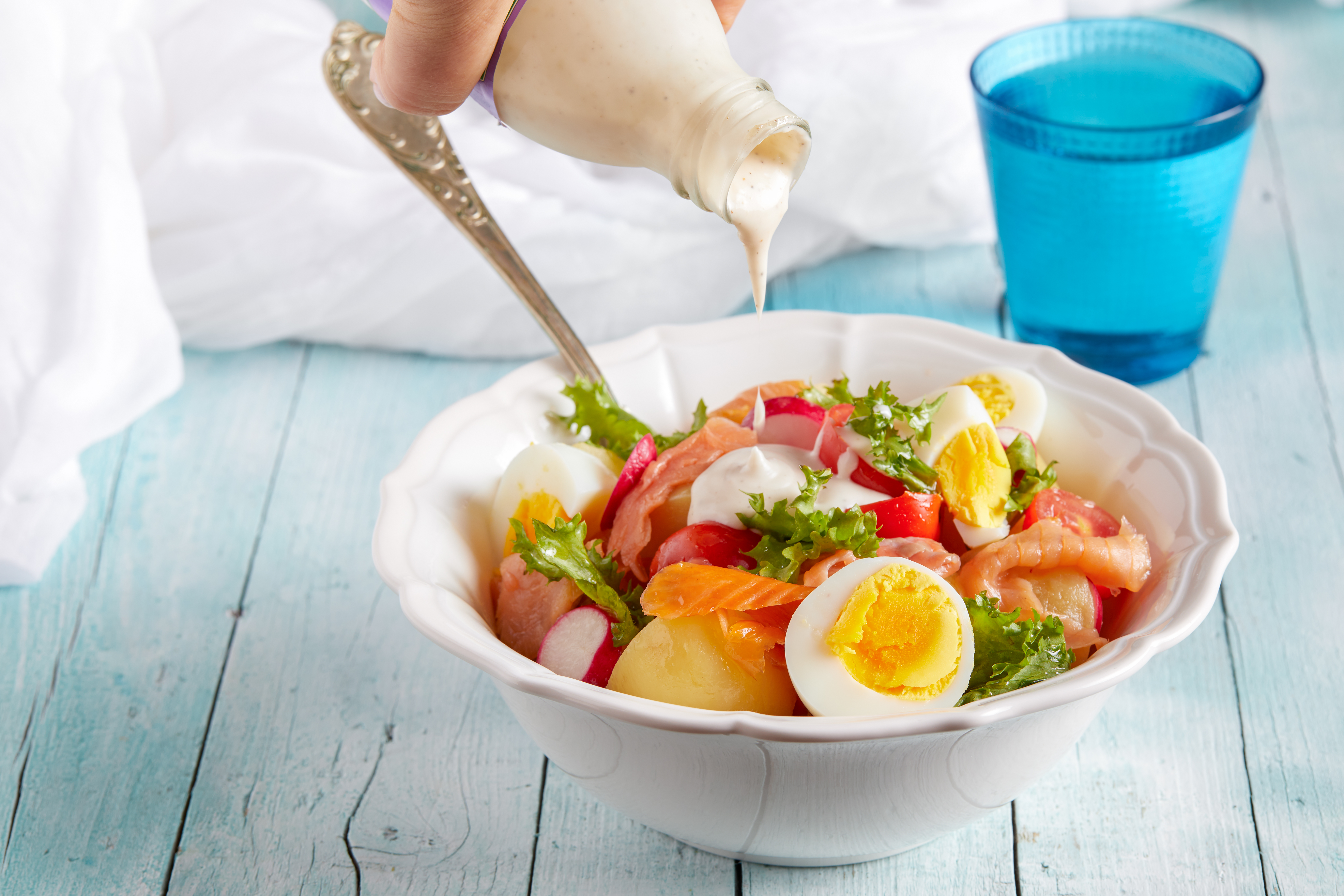
You've made a great choice by eating a salad, but what you put on top could be its undoing. Most store-bought creamy dressings and even many vinaigrettes are made with high-fructose corn syrup, refined vegetable oils (like soybean or corn oil), and unhealthy fats. These ingredients can quickly turn a nutritious, cholesterol-lowering meal into a calorie and fat bomb that raises LDL. The best choice is to make your own dressing at home with extra virgin olive oil, vinegar or lemon juice, and herbs. It’s easy, affordable, and guarantees that your salad is working for your heart, not against it.
35. Pork Rinds: The Keto-Friendly Snack That’s Fat Overload
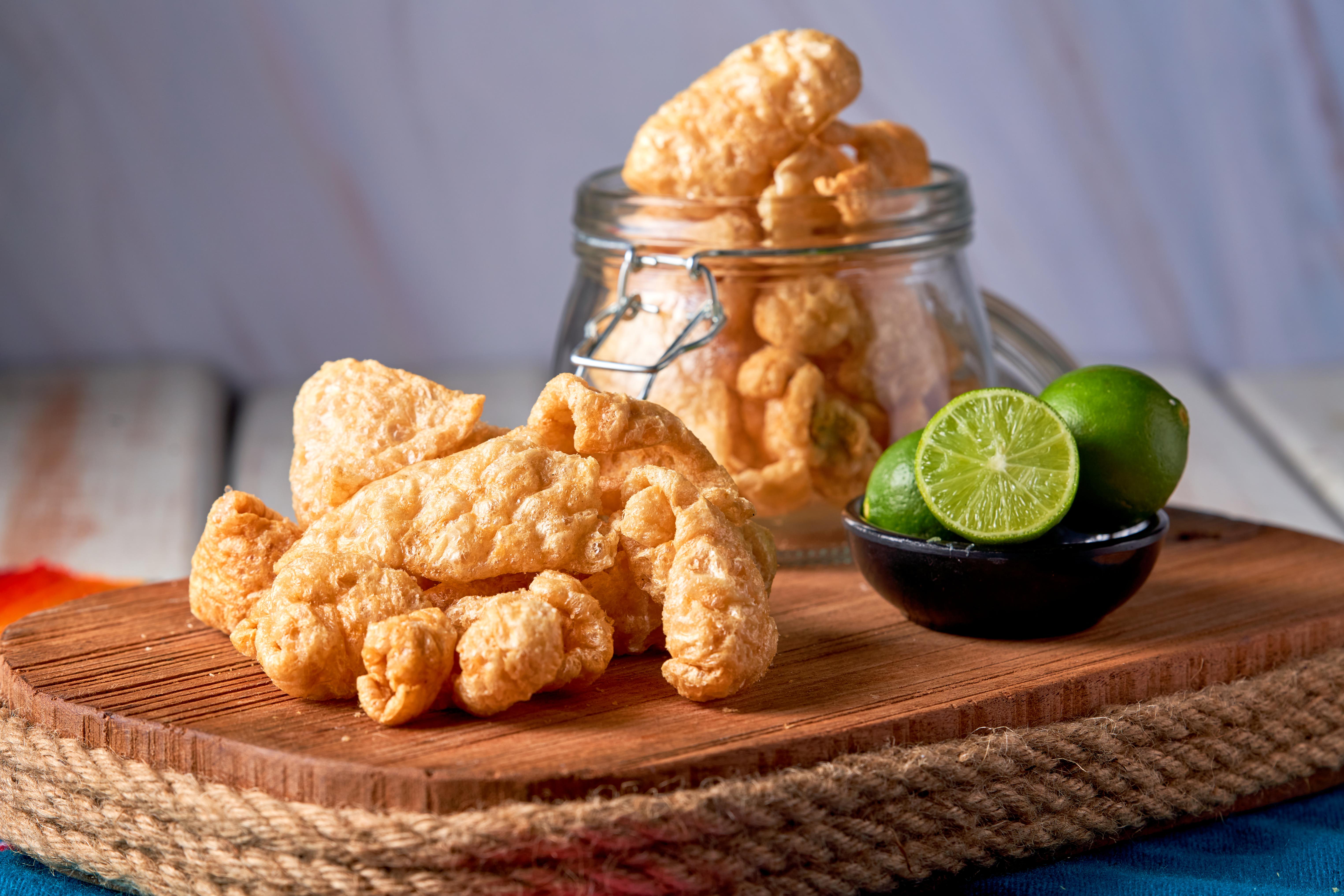
Pork rinds (or chicharrónes) are a popular low-carb, keto-friendly snack, but they’re not a friend to your cholesterol. While they contain zero carbohydrates, they are made from deep-fried pork skin and are extremely high in saturated fat and sodium. A single serving can contain a significant amount of saturated fat, which directly elevates LDL cholesterol. The processing methods and high saturated fat content make them a snack that can quietly clog arteries and contribute to a poor heart health profile. For a better crunchy snack, opt for roasted nuts or seeds, which provide healthy fats and fiber.
36. Protein Powder: The Post-Workout Shake with Hidden Saturated Fat
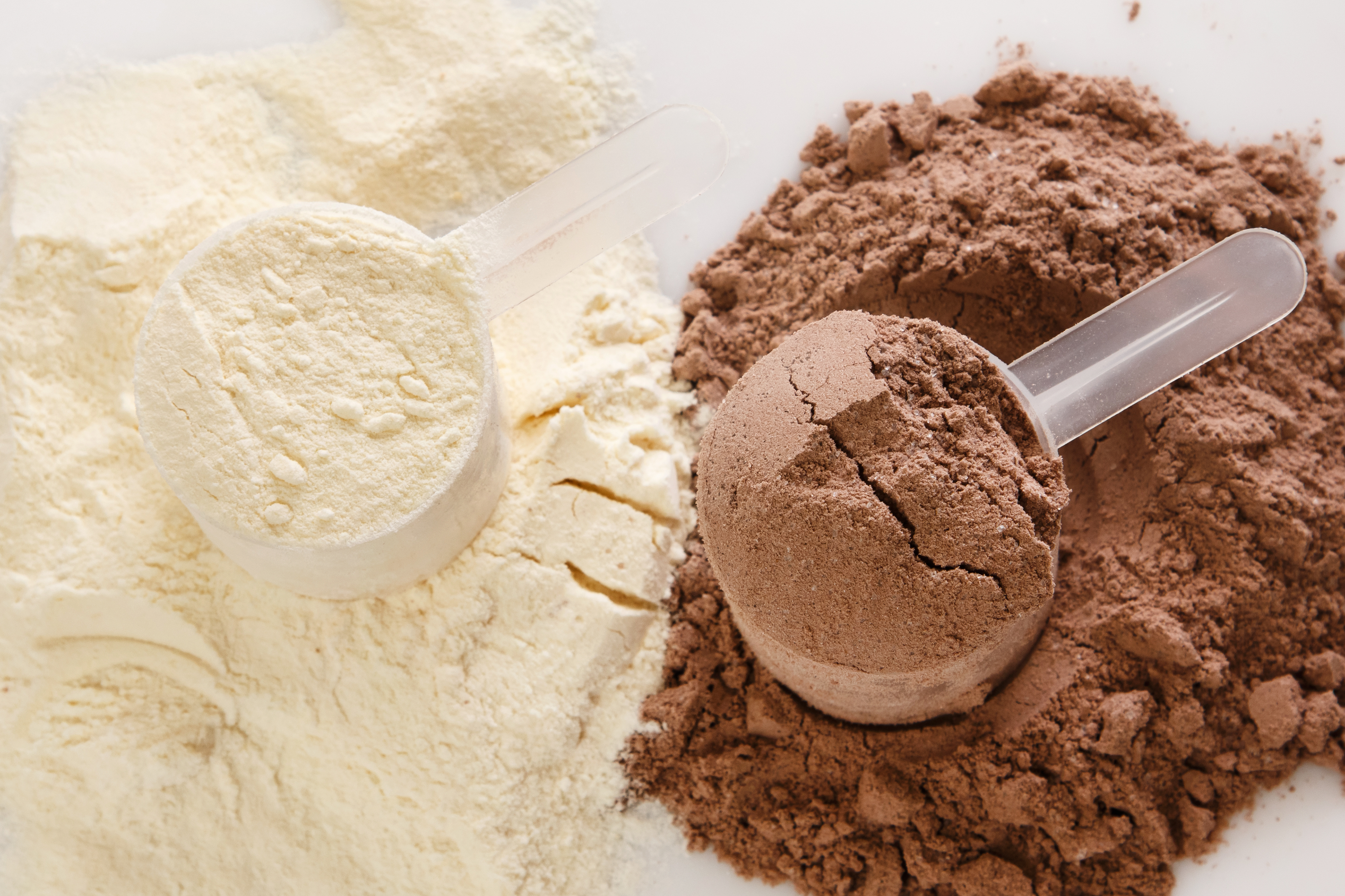
Protein powder is a convenient way to boost protein intake, but some varieties can be a quiet threat to your heart. Many popular brands, especially those made from whey concentrate, can be high in saturated fat. Some flavors also contain added sugars or artificial sweeteners that can disrupt your metabolic health and contribute to higher cholesterol. If you rely on protein shakes, read the ingredients list carefully. Choose a whey protein isolate, which has most of the fat and lactose removed, or opt for a plant-based protein powder made from sources like peas, hemp, or brown rice for a cleaner, heart-friendly alternative.
37. Restaurant and Takeaway Meals: The Hidden Saturated Fat Trap

While your article covers fast food, many restaurant meals and seemingly healthy takeout options can be a stealthy source of saturated and trans fats. Chefs often use large amounts of butter, cream, and cheap vegetable oils to enhance flavor, and these fats are a direct driver of high LDL cholesterol. Even dishes that appear healthy, like a large salad with a creamy dressing, can be a hidden trap. The best way to navigate this is to ask for sauces and dressings on the side, choose grilled or steamed options, and be mindful of your portion size.
38. Red Meat: The Over-Portioned Saturated Fat Problem
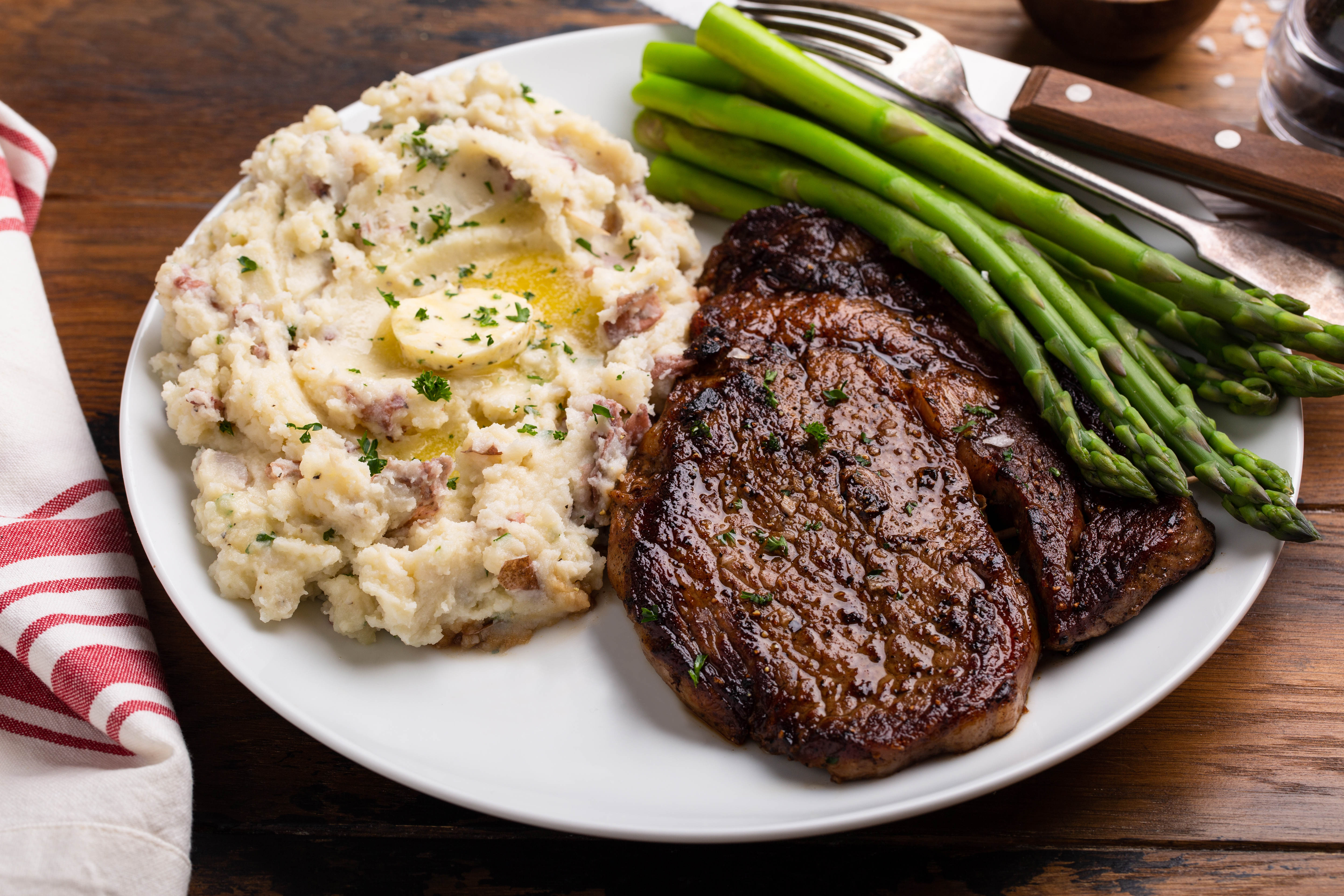
While lean cuts of red meat can be a good source of protein, the standard American portion size is often too large, leading to an overconsumption of saturated fat. Many popular cuts, like ribeye steak or ground beef, are high in saturated fat, which directly raises LDL cholesterol. The American Heart Association recommends limiting red meat consumption to a few times a week. For a heart-healthy alternative, opt for lean cuts, choose grass-fed beef (which is lower in saturated fat), or swap red meat for plant-based proteins like lentils or chickpeas.
39. Full-Fat Yogurt and Dairy Desserts: The Hidden Saturated Fat Trap
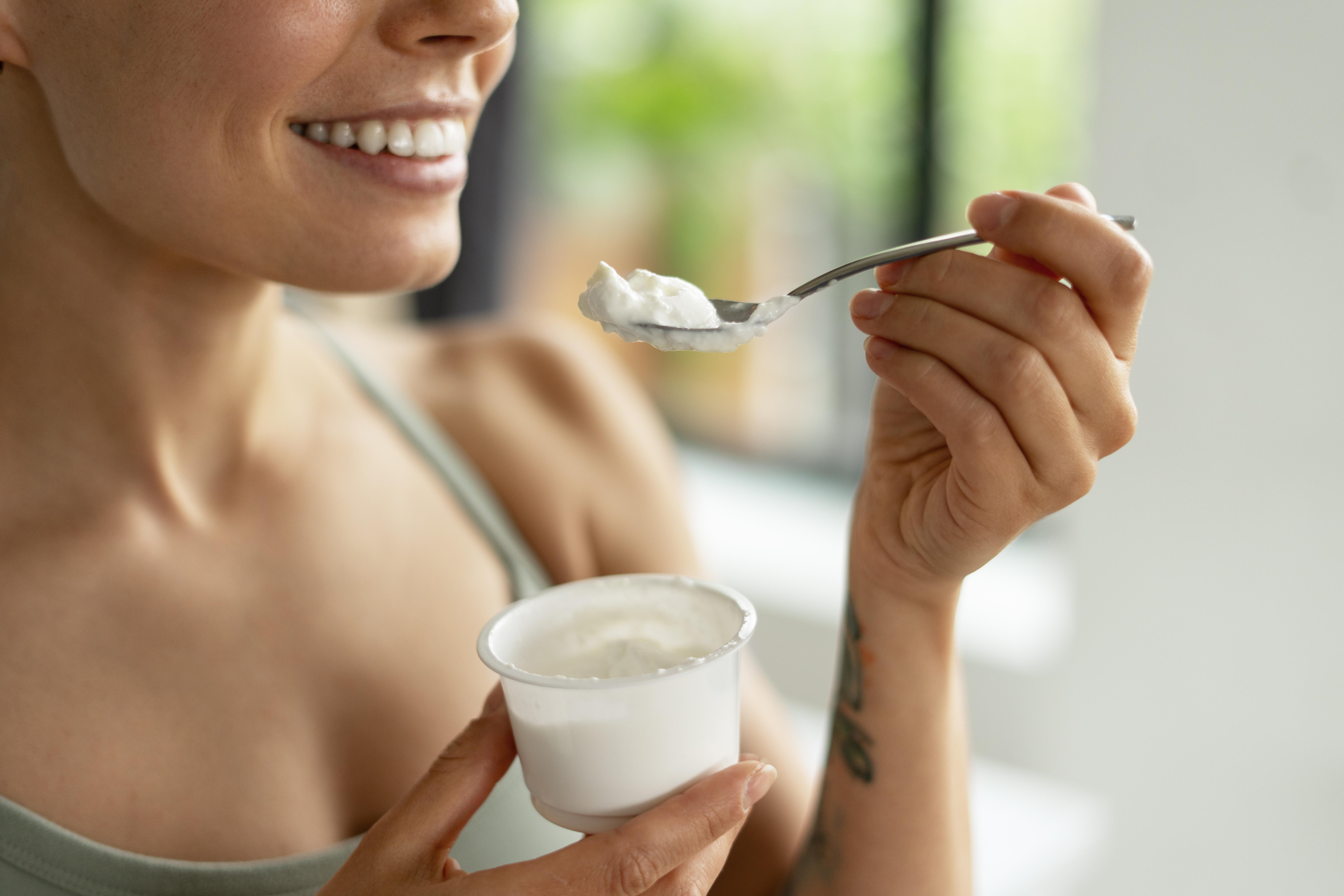
You've already mentioned full-fat dairy, but it's worth highlighting specific dairy desserts like ice cream, milkshakes, and creamy puddings, which can be loaded with saturated fat and added sugars. While these desserts are delicious, they can be a major contributor to high LDL cholesterol and triglycerides. For a heart-healthy alternative, opt for plain, unsweetened Greek yogurt and add your own fruit. This allows you to enjoy a creamy, satisfying treat without the negative impact on your lipid profile.
40. Coconut Milk and Cream: The Plant-Based Saturated Fat Surprise
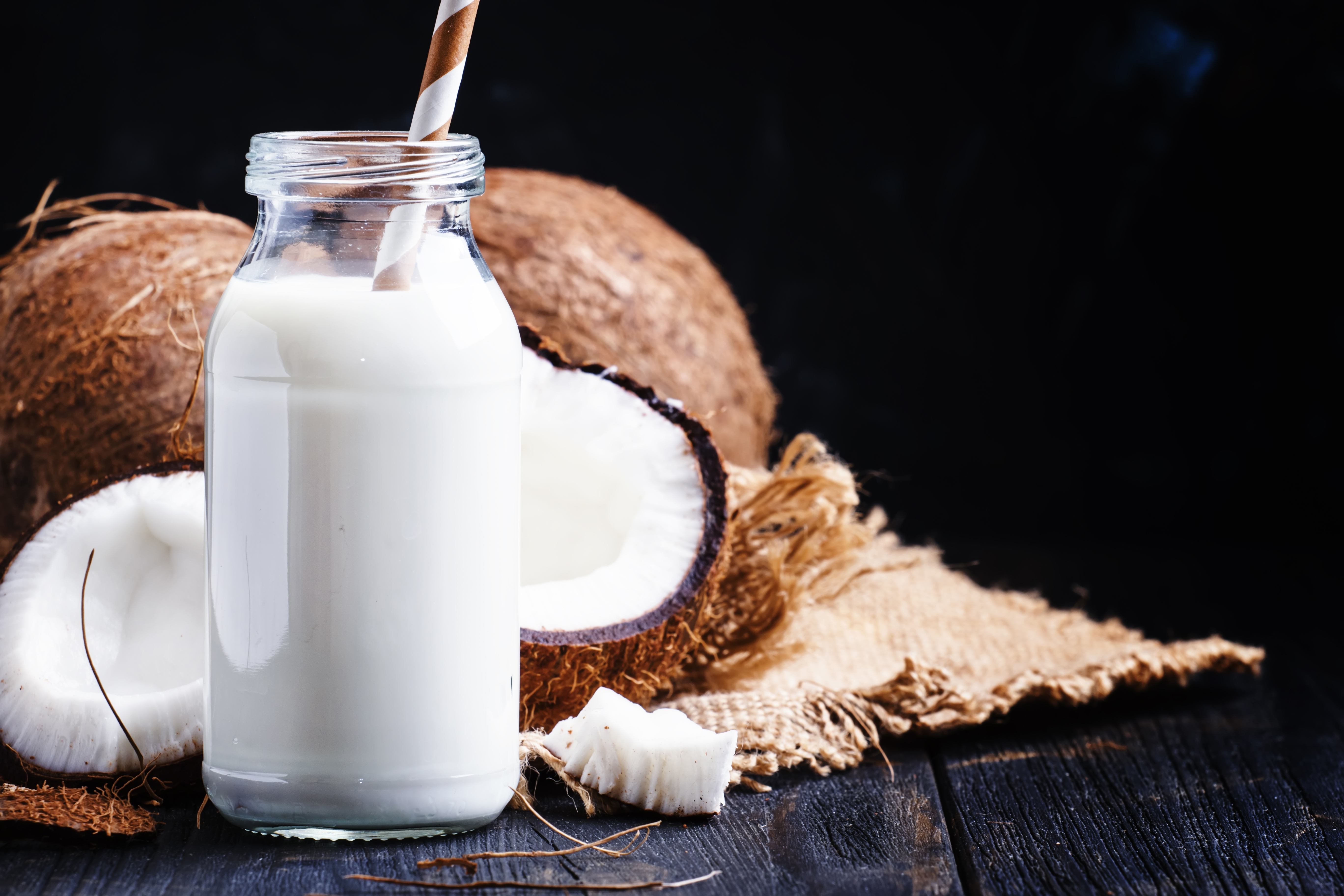
Coconut milk and cream are popular plant-based alternatives to dairy, but they can be a surprise source of saturated fat. While the saturated fat in coconut is composed of medium-chain triglycerides, which are metabolized differently than other saturated fats, they can still raise LDL cholesterol. For a heart-healthy alternative, opt for low-fat or light coconut milk, or use a plant-based milk with a lower saturated fat content, such as almond or oat milk. This is especially important for individuals who are genetically predisposed to high cholesterol.
41. Pizza: The Ultimate Cholesterol-Raising Culprit

Pizza, a beloved comfort food, is a perfect storm of cholesterol-raising ingredients. It combines refined carbohydrates from the crust, saturated fat from cheese and processed meats, and often, high-sodium sauces. A single slice of a popular chain's pizza can contain a significant amount of saturated fat and sodium, which can contribute to high LDL cholesterol and blood pressure. For a heart-healthy alternative, make your own pizza at home with a whole-grain crust, low-fat cheese, and plenty of vegetables. This allows you to enjoy your favorite food without compromising your heart health.
42. Dried Spices: The Hidden Salt and Additive Trap
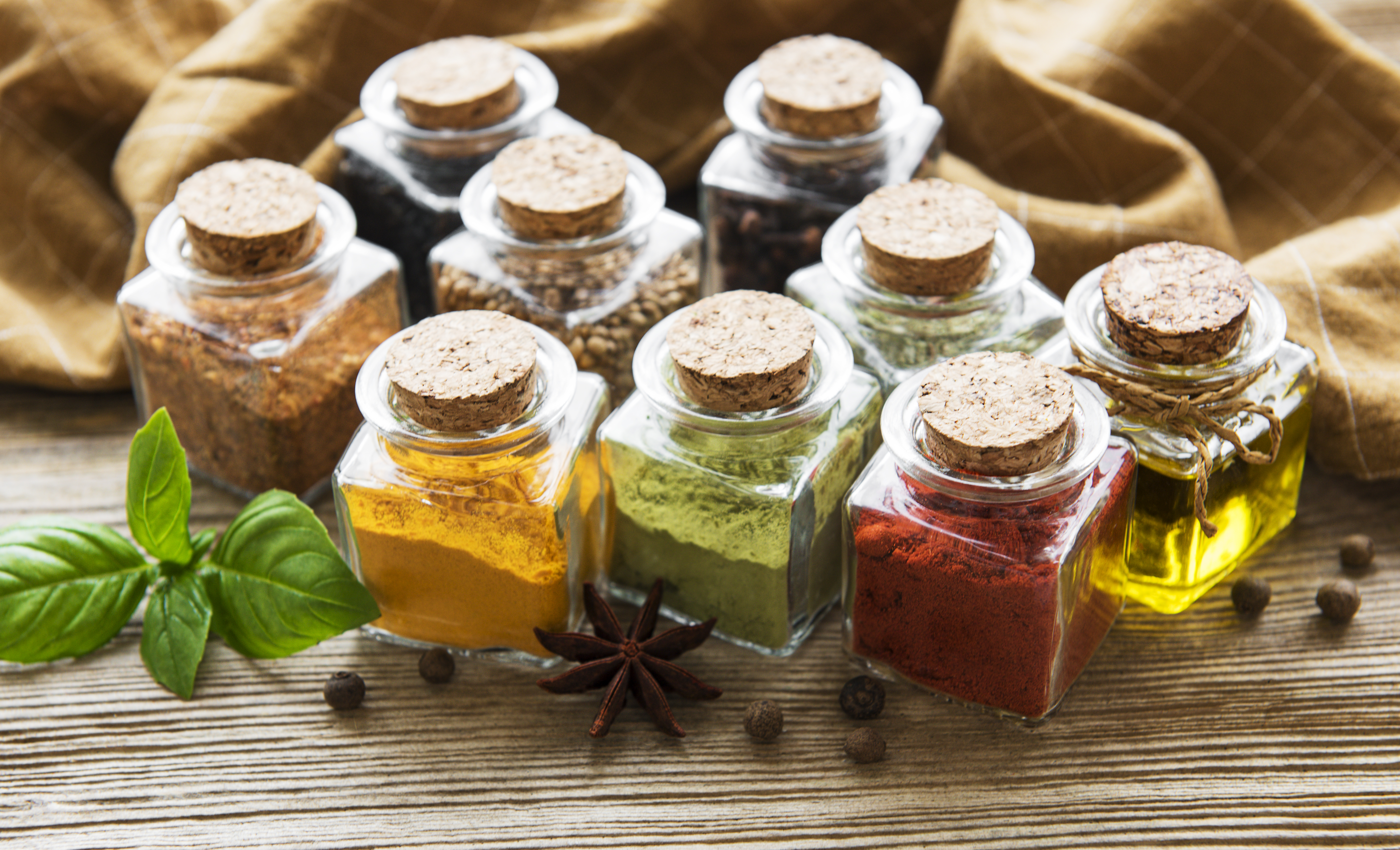
We often think of dried spices as a harmless way to add flavor, but many pre-mixed blends, especially those with "seasoning" in the name (like taco seasoning, ranch mix, or garlic salt), are loaded with hidden sodium, sugar, and anti-caking agents. Excess sodium directly contributes to high blood pressure, a major risk factor for heart disease, while some additives can disrupt your metabolism. The real benefit of spices comes from their pure, whole form. To avoid this hidden trap, buy single-ingredient spices and make your own blends at home. This simple change allows you to enjoy the full flavor and antioxidant benefits without the heart-damaging additives.
43. Smoothie Bowls: The Sugar-Packed Deception
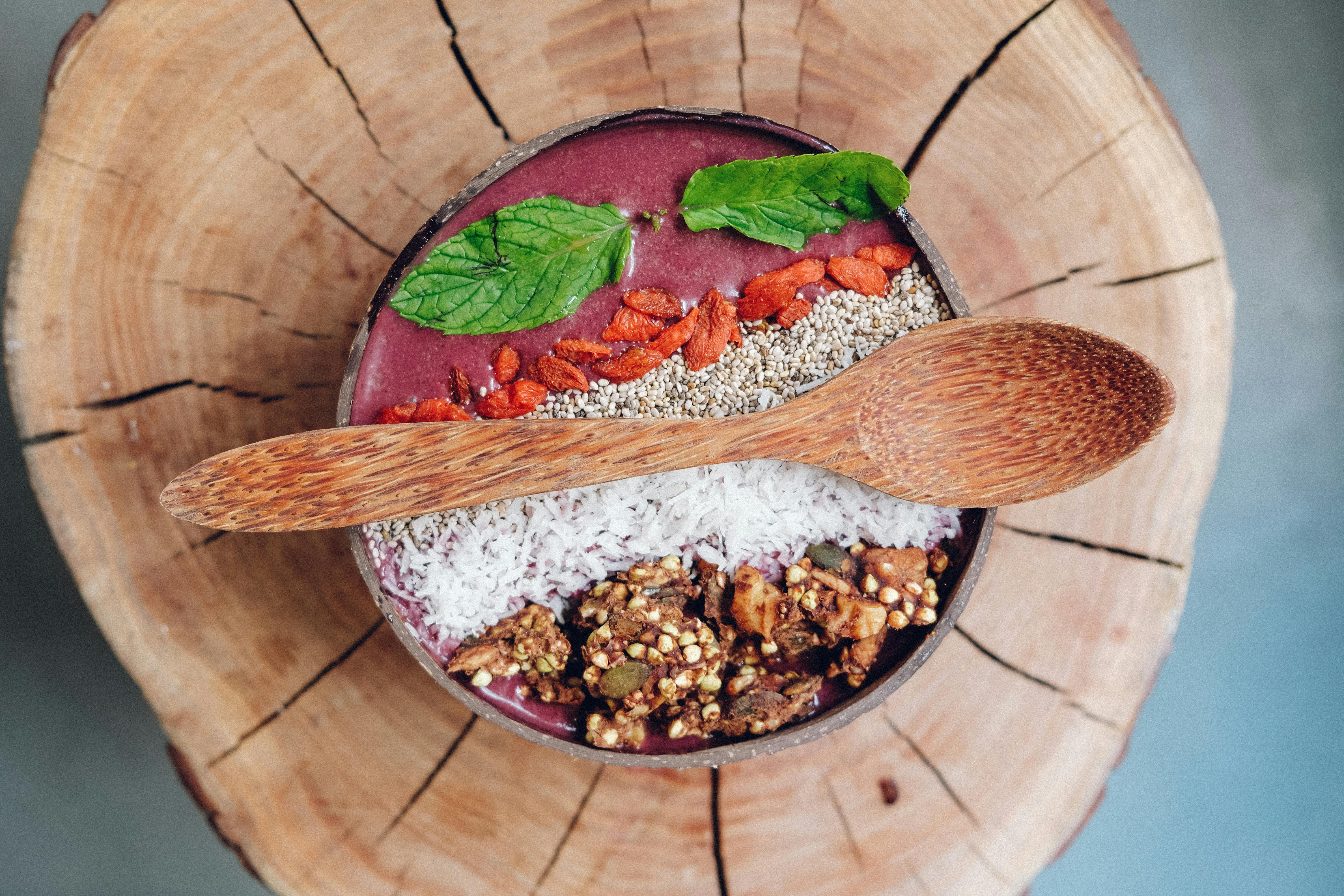
While smoothie bowls are marketed as a virtuous health food, they can be a cholesterol-raising sugar bomb in disguise. Many bowls are made with large amounts of high-glycemic fruit, sweetened yogurt, and sugary nut milks. The combination of high sugar and refined carbs can cause blood sugar spikes, leading to increased triglycerides and a reduction in good HDL cholesterol. The trendy toppings, like granola and sweetened coconut flakes, often add even more sugar and saturated fat. To make a heart-healthy bowl, start with a base of leafy greens, add a small portion of fruit, use unsweetened plant-based milk, and top with healthy fats from a few nuts or seeds.
44. Pre-packaged Salad Kits: The Unhealthy-Fat Dressing

You grab a pre-packaged salad from the grocery store, thinking you've made a great, heart-healthy choice. But the real danger often lies in the packet of dressing and toppings. Most store-bought dressings, especially creamy ones, are made with cheap, highly-processed vegetable oils (like soybean and corn oil) that are high in omega-6 fatty acids, which can promote inflammation. They are also often high in added sugar and sodium. The added toppings, such as fried noodles, candied nuts, or croutons, are also typically loaded with trans fats and preservatives. To truly benefit from a salad, make your own dressing with olive oil and vinegar, and add whole-food toppings like roasted chickpeas or fresh vegetables.
45. Oat Milk: The Creamy Comfort with Hidden Oils

Oat milk has exploded in popularity as a dairy-free alternative for lattes and smoothies. However, not all oat milk is created equal. Many commercial brands are ultra-processed and contain added oils, such as rapeseed or sunflower oil, to achieve that creamy, frothy texture. When consumed regularly, these processed vegetable oils can disrupt your body's omega-3 to omega-6 fatty acid ratio, leading to increased inflammation, a key driver of heart disease. To make a heart-safe choice, always check the ingredients list for added oils and opt for brands with a simple, whole-food ingredient list or make your own at home.
47. Sushi Rolls: The Deceptive Healthy Treat

While the fish in sushi is rich in heart-healthy omega-3s, many popular sushi rolls are far from a healthy choice. The sticky white rice is often prepared with a sugary vinegar mixture, and many rolls are filled with high-fat, high-sodium ingredients like cream cheese, tempura-fried seafood, and sugary sauces. These additions can quickly turn a lean protein meal into a calorie and sugar bomb that raises triglycerides and contributes to insulin resistance—two major factors in cholesterol management. For a heart-smart choice, stick to simple rolls with raw fish, vegetables, and minimal sauces.
46. Protein Bars: A Candy Bar in Disguise
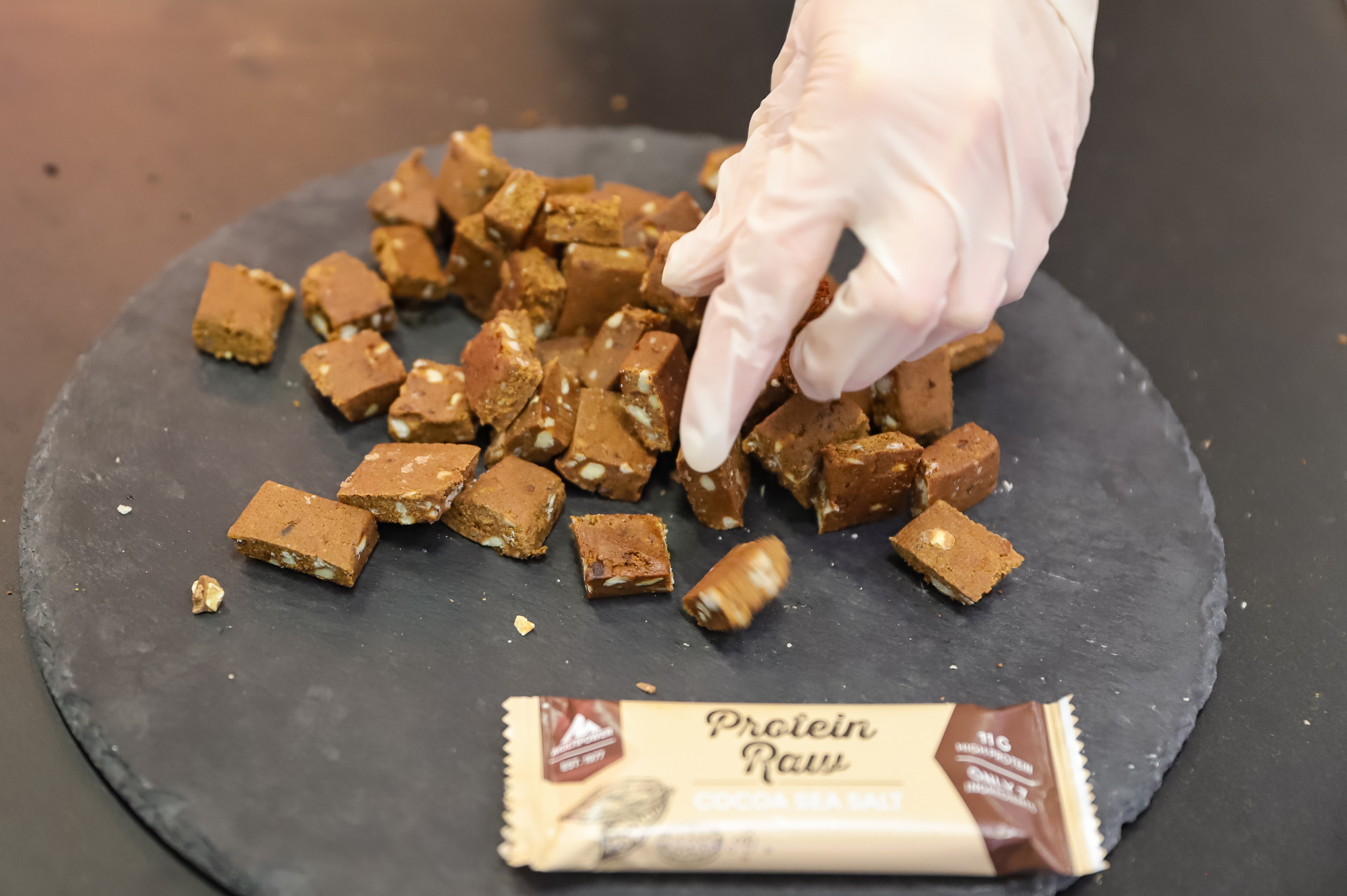
While marketed as a convenient, high-protein snack for the health-conscious, many protein bars are essentially candy bars in disguise. They're often loaded with cheap fillers, added sugars (like corn syrup or high-fructose corn syrup), and processed oils to improve taste and texture. This combination creates a metabolic nightmare: the high sugar content can spike blood glucose and contribute to an increase in triglycerides, while the unhealthy fats can raise LDL cholesterol. Instead of relying on a highly-processed bar, consider a whole-food snack like an apple with a handful of almonds or a hard-boiled egg for sustained energy without the hidden risks.
48. Frozen French Fries and Hash Browns: The Trans Fat Trap

Frozen potato products, like french fries, tater tots, and hash browns, are a classic example of a seemingly harmless side dish that can wreck your cholesterol profile. To achieve a crispy, golden-brown texture, they are often pre-fried in trans fat or other hydrogenated oils before being frozen. Trans fats are the most dangerous type of fat for your heart because they not only raise your LDL (bad) cholesterol but also actively lower your HDL (good) cholesterol. Even if you finish them in your oven, you're still consuming a significant amount of these artery-clogging fats. For a healthier alternative, make your own baked fries from fresh potatoes and a heart-healthy oil.
49. Flavored Coffee Creamers: The Sugary, Fatty Kick
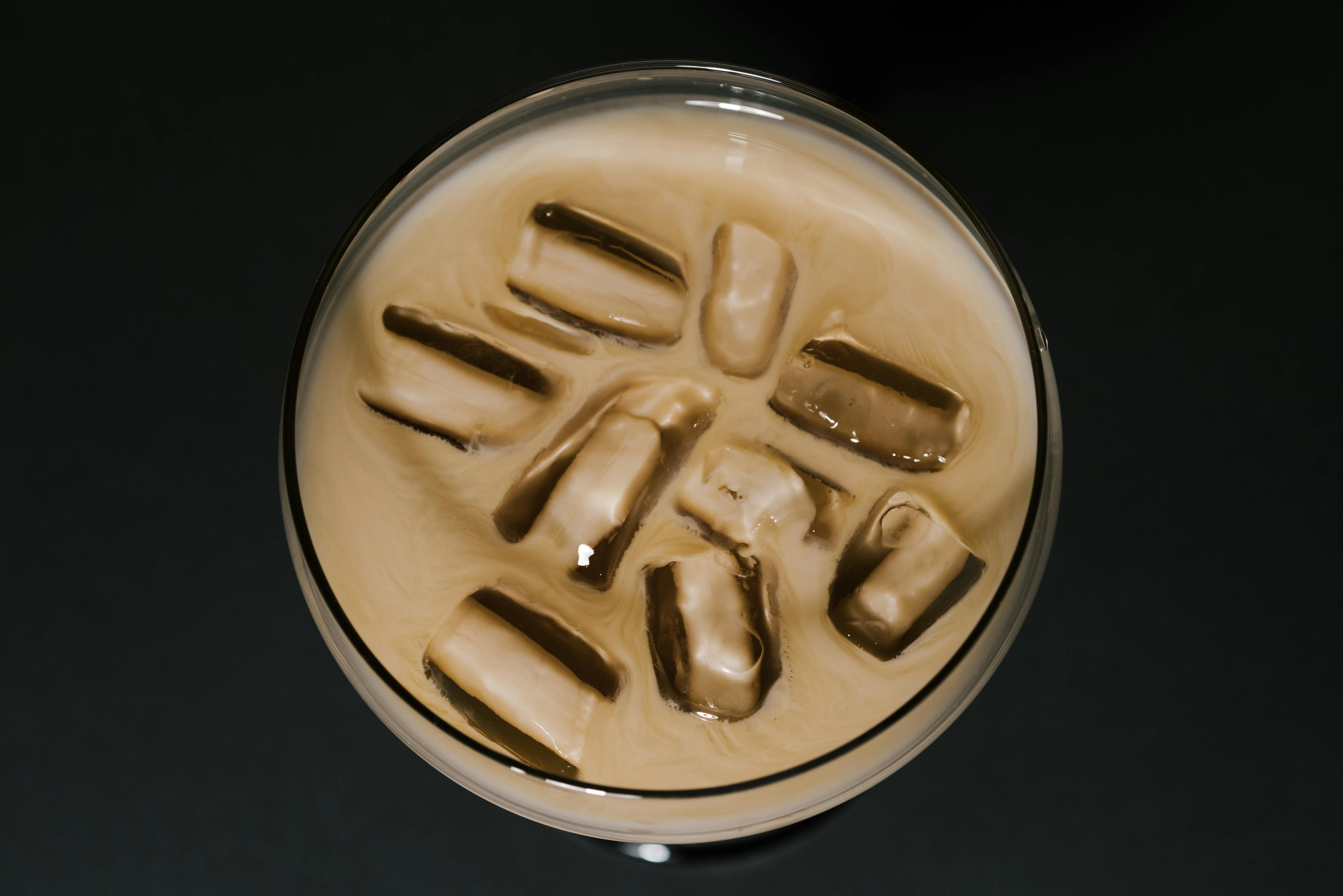
A cup of black coffee is great for your health, but many people turn it into a cholesterol-raising bomb with flavored creamers. These products are often made from a base of water, sugar, and processed vegetable oils (like palm or corn oil) that mimic the creaminess of milk but come with none of its nutrients. The combination of added sugar and saturated fats can lead to an increase in triglycerides and LDL cholesterol. Some of these creamers are so processed they don’t even require refrigeration until opened. To keep your coffee heart-healthy, opt for a splash of skim milk or unsweetened almond milk instead.
50. Cereal: The Processed Breakfast Risk
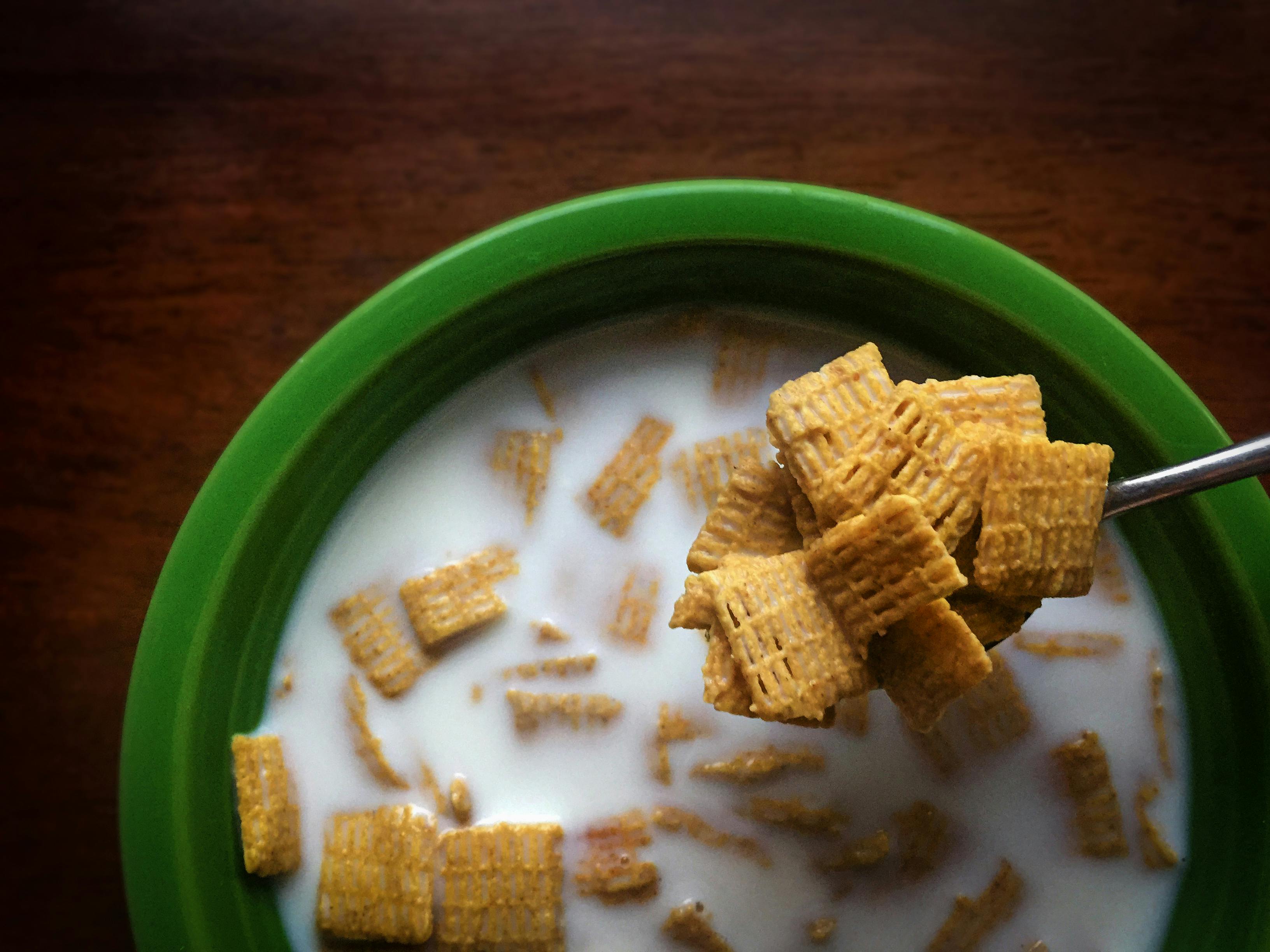
Cereal is a morning staple, but most boxes are a minefield of refined carbohydrates and hidden sugars that can quietly undermine your heart health. Even seemingly healthy-looking options with "whole grain" on the box can be highly processed, with the fiber stripped away and sugar added for flavor. These refined carbs cause a sharp spike in blood sugar, which over time can lead to insulin resistance and an increase in triglycerides. For a truly heart-healthy breakfast, choose plain oats, and add your own fruit, nuts, and cinnamon for a fiber-rich meal that keeps your cholesterol in check.
51. Margarine and Vegetable Shortening: The Old-School Threat
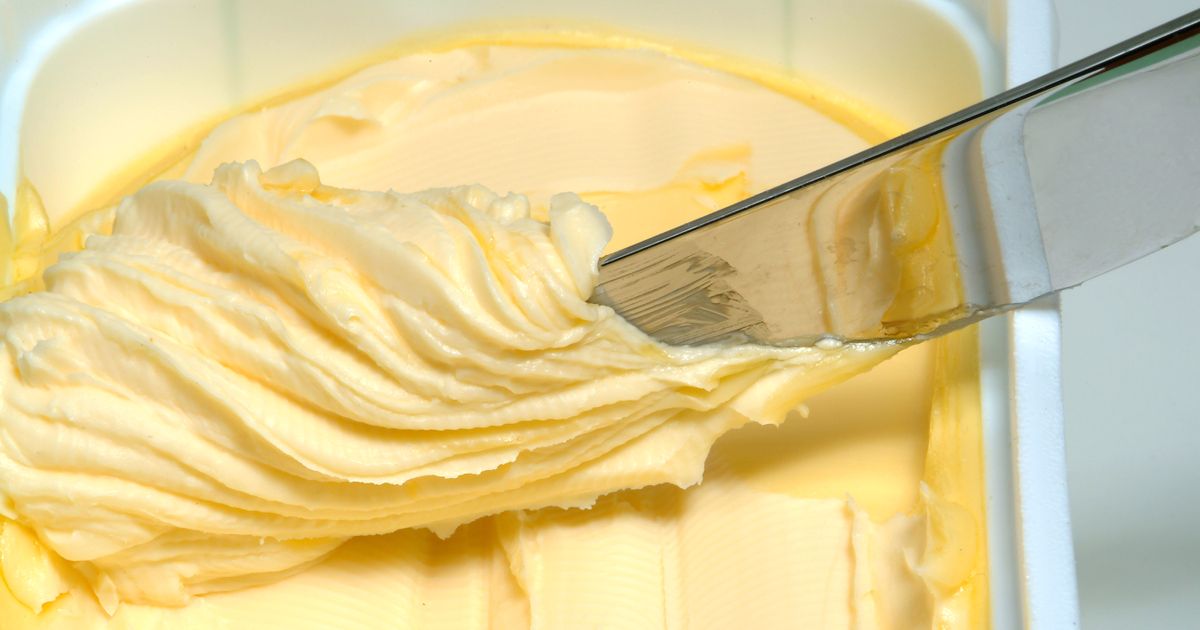
While butter has gotten a bad rap, margarine and vegetable shortening, especially older formulations, can be far worse for your heart. These products were originally created by a process called hydrogenation to make liquid vegetable oils solid at room temperature. This process creates trans fats, the very same type of fat that has been proven to increase bad cholesterol and decrease good cholesterol. While many brands have since removed trans fats, some still contain trace amounts, and others use processed oils that can still be inflammatory. For heart-healthy fats, stick to liquid olive oil, avocado oil, or a small amount of real butter.
52. Canned Fruits in Syrup: The Hidden Sugar Bomb
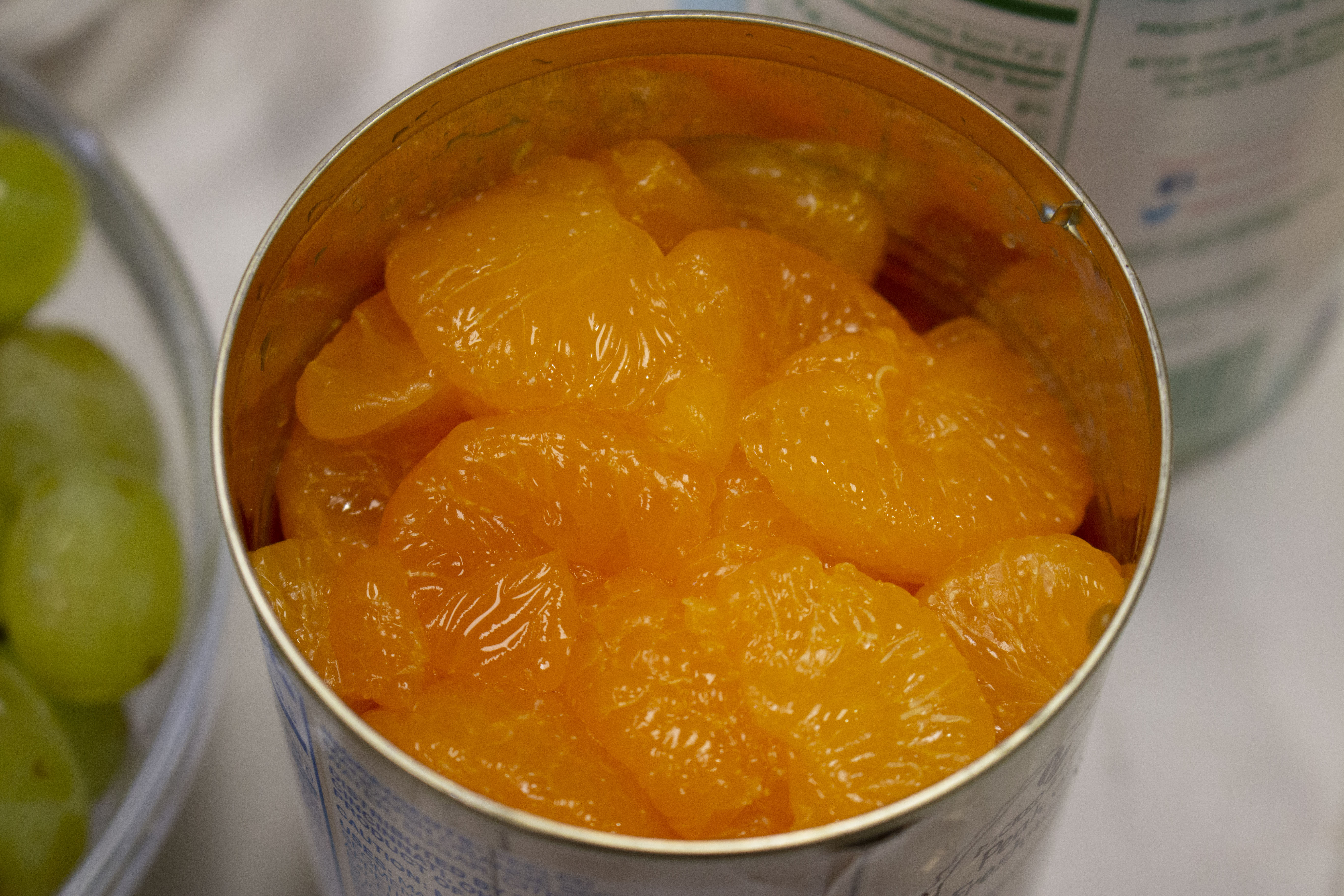
While fresh fruit is a heart-healthy choice, canned fruit can be a secret source of sugar that raises your cholesterol. Many varieties are packed in heavy syrup to preserve them and enhance flavor, but this adds a significant amount of sugar. This concentrated sugar load can lead to a spike in blood sugar and an increase in triglycerides, a type of fat in your blood that's a key risk factor for heart disease. The canning process also often reduces the fruit's beneficial fiber content. To get the goodness of fruit without the cholesterol risks, choose fruit canned in its own juice, or better yet, opt for fresh or frozen fruit.
53. Fat-Free Salad Dressing: The Sugar and Sodium Swap

You might reach for a fat-free salad dressing thinking it’s a smart choice for your heart, but you're likely trading healthy fats for something much worse. To compensate for the flavor and texture lost when fat is removed, manufacturers often pump these dressings full of sugar, high-fructose corn syrup, and sodium. This combination can lead to weight gain, high blood pressure, and elevated triglycerides—all factors that worsen your cholesterol profile. A truly heart-healthy salad is one dressed with a simple vinaigrette made from extra-virgin olive oil, which is rich in monounsaturated fats that can actually help lower your LDL cholesterol.
54. Rice: The Cholesterol-Raising Carbohydrate
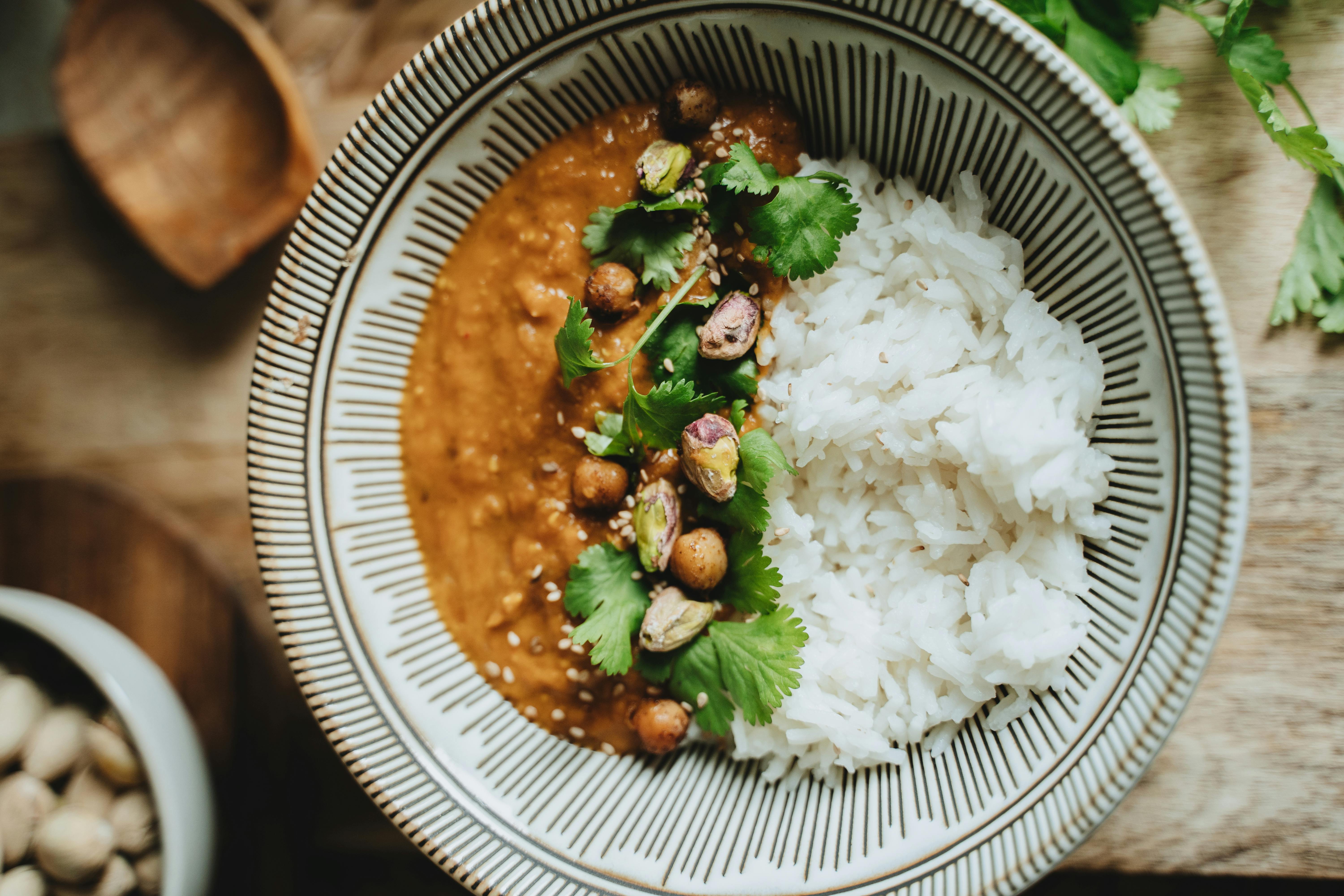
While brown rice contains fiber, most people eat white rice, which is highly refined and has a high glycemic index. This means it causes a rapid spike in blood sugar, which triggers your body to produce more insulin. Over time, this can lead to insulin resistance and an increase in triglycerides. It also doesn’t provide the satiety of whole grains, which can lead to overeating. To keep your heart healthy, swap white rice for fiber-rich alternatives like quinoa, barley, or brown rice.
55. Packaged Baked Chips: The Deceptive Snack Trap

Baked chips sound like a healthier alternative to their fried counterparts, but they can be a cholesterol trap in disguise. Many brands use processed vegetable oils, which are high in omega-6 fatty acids that can promote inflammation. Furthermore, to make up for the flavor and texture lost from frying, these products are often heavily salted and can contain hidden sugars. These additives contribute to high blood pressure and can disrupt your metabolism, leading to a rise in bad cholesterol. A better crunchy snack is air-popped popcorn or a handful of roasted nuts, which provide fiber and healthy fats.
56. Store-Bought Granola Bars: The Convenient Sugar Stick
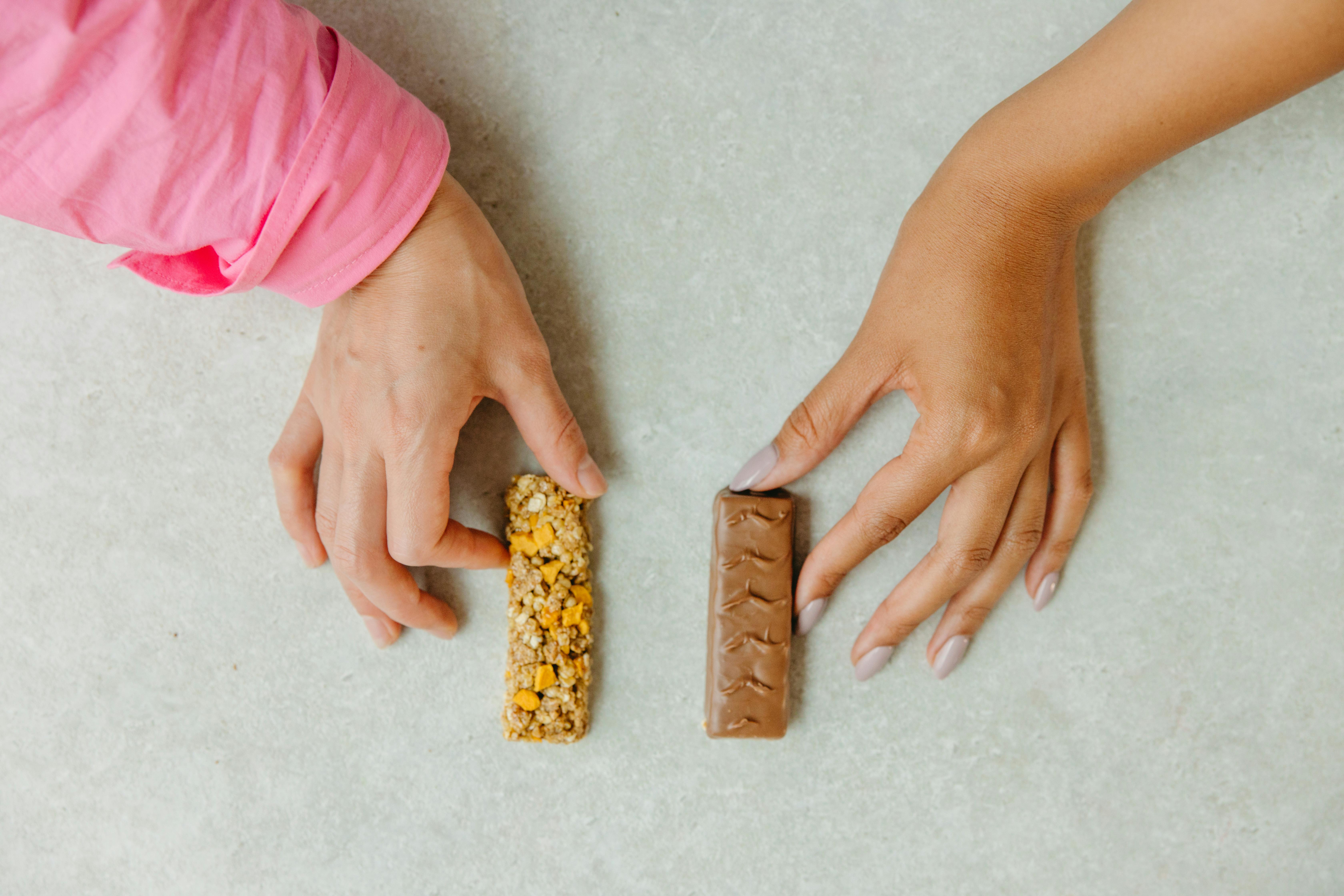
Granola bars are often marketed as a quick, healthy snack, but many are essentially candy bars in disguise. They are frequently bound together with high-fructose corn syrup, honey, or other sugars, which can lead to a rise in triglycerides. Many also contain processed oils and minimal fiber. Some "protein" bars are also loaded with ingredients that can raise cholesterol. For a truly heart-healthy on-the-go snack, choose a bar with a simple, whole-food ingredient list or opt for a handful of almonds, which provide healthy fats and fiber to keep your cholesterol in check.
When “Healthy” Isn’t Helping

Eating well isn’t just about what looks or sounds healthy—it’s about what actually supports your body from the inside out. As we’ve seen with these foods, even the most well-marketed “health” staples can quietly raise your LDL cholesterol, derail your progress, and blur the line between wellness and risk. The truth is, heart health isn’t found in a label—it’s found in the ingredients, the processing, and the patterns we repeat every day. But here’s the good news: once you know better, you choose better. By reading between the marketing lines, checking ingredients, and making simple swaps, you can enjoy convenience and protect your heart.